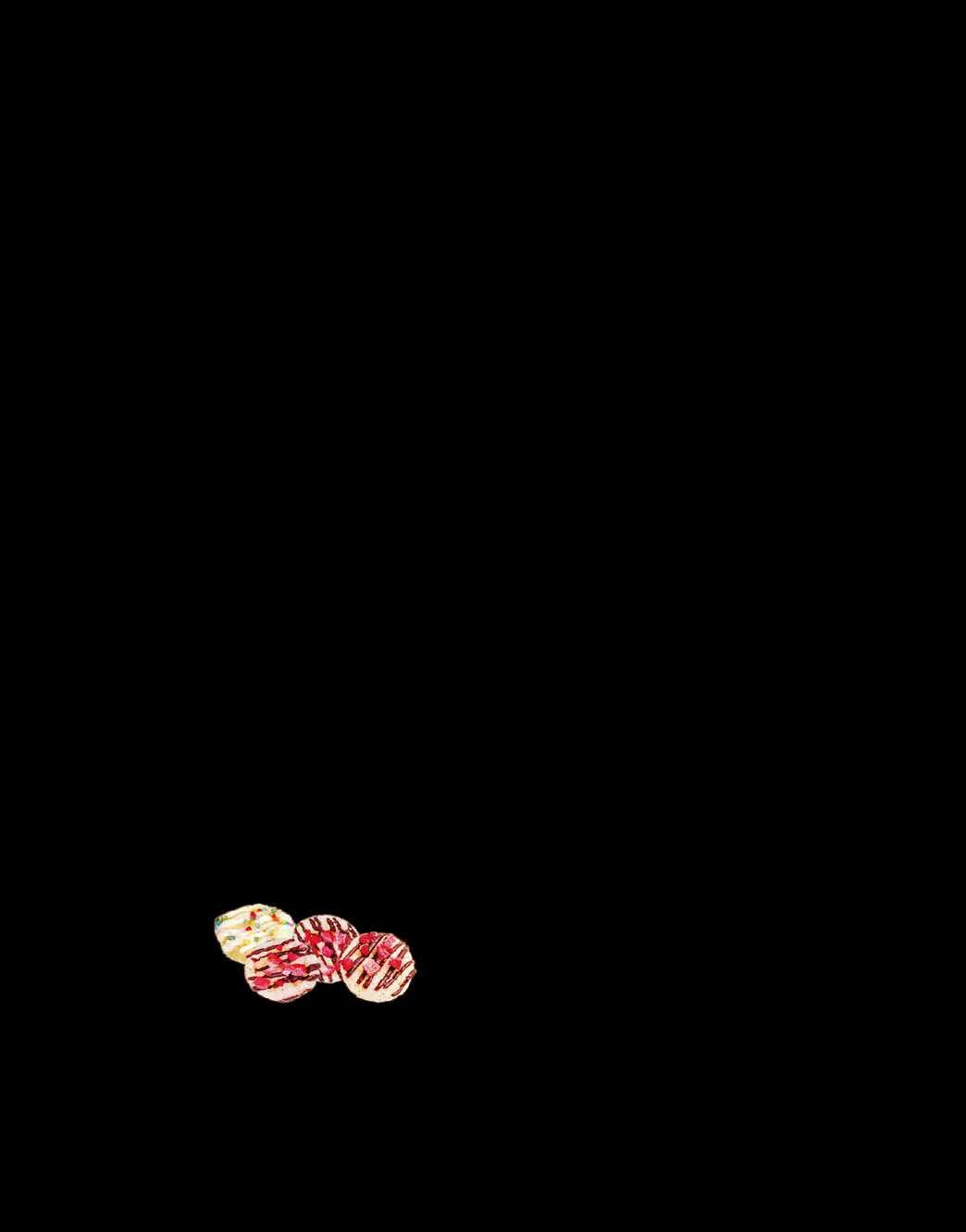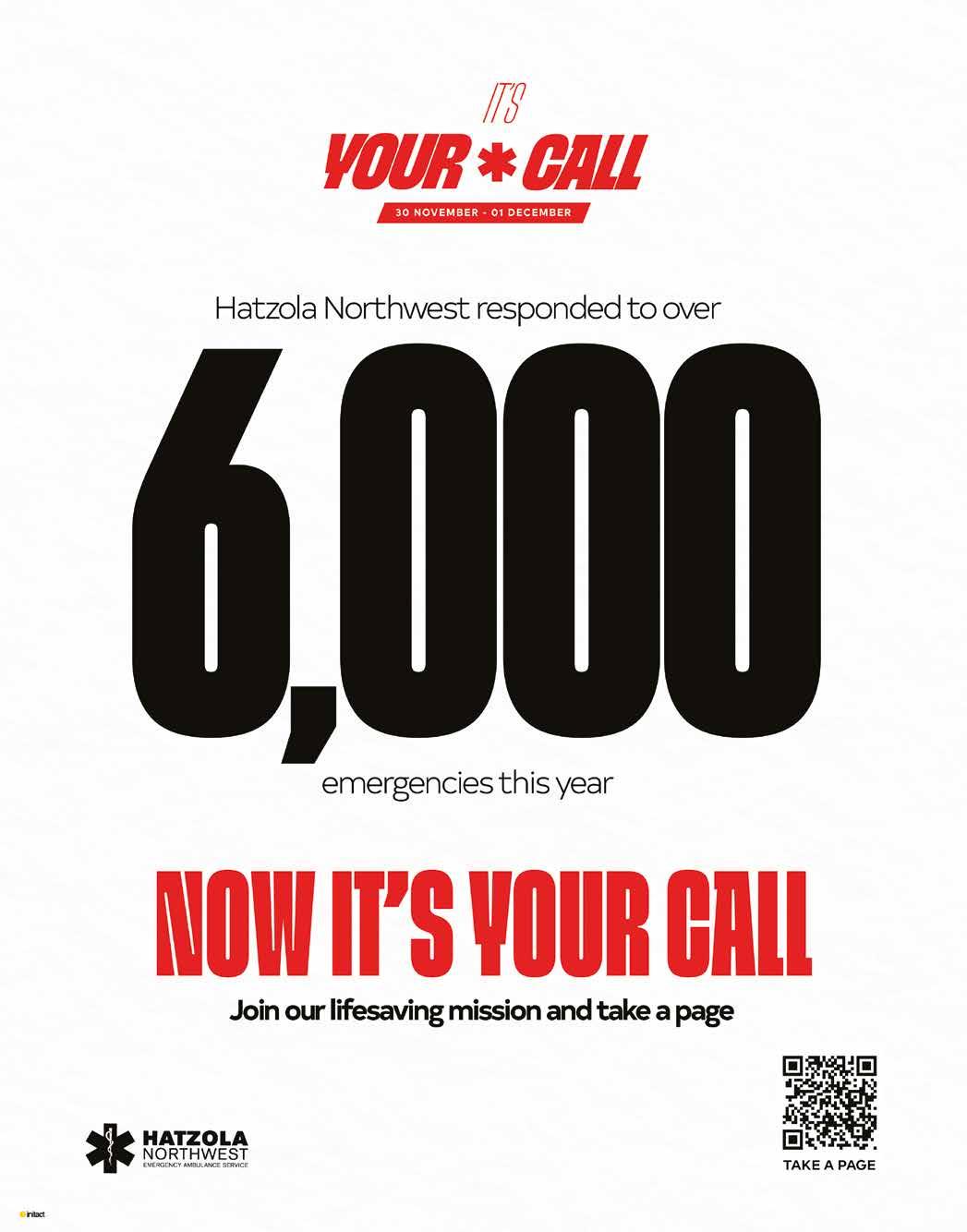










SHABBAT: BEGINS ENDS
London 15:49 16:55
Manchester 15:48 16:58
Leeds 15:41 16:58
Liverpool 15:48 17:05
Birmingham 15:49 16:59
Antwerp 16:28 17:41 Bournemouth 15:55 17:07
15:36 16:55
16:01 17:16

STANDING WITH ISRAEL NOW AND ALWAYS

















SHABBAT: BEGINS ENDS
London 15:49 16:55
Manchester 15:48 16:58
Leeds 15:41 16:58
Liverpool 15:48 17:05
Birmingham 15:49 16:59
Antwerp 16:28 17:41 Bournemouth 15:55 17:07
15:36 16:55
16:01 17:16






BY DAVID SAFFER
Israeli leaders have welcomed the UN Security Council adopting Resolution 2803 to implement President Donald Trump’s 20-point peace plan for the Gaza Strip.
The remains of three hostages have still to be released by Hamas.
Prime Minister Benjamin Netanyahu hailed the decision.
“President Trump’s breakthrough leadership will help lead the region to peace and prosperity and a lasting alliance with the United States,” he said, adding that it would aid “integration of Israel and its neighbours” along with expansion of the Abraham Accords.
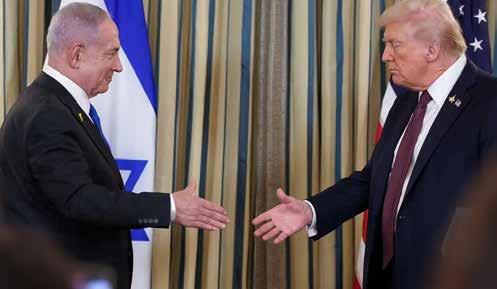
Netanyahu, who before the vote restated his opposition to a Palestinian state, noted Israel expects to receive the last deceased

hostages in Gaza without delay.
Israel’s UN Ambassador Danny Danon said Israel demands the disarmament of Hamas.
“As we are determined to bring back all the hostages, we will display the same determination and ensure that Hamas is disarmed,” he noted. “We will not stop and will not rest until Hamas is not a threat to the State of Israel.”
President Isaac Herzog congratulated Trump’s historic achievement at the UN.

Addressing a delegation of 180 German leaders in Jerusalem, he noted a “very historic moment”.




Who else wants to save money on their health insurance?
020 3348 9868
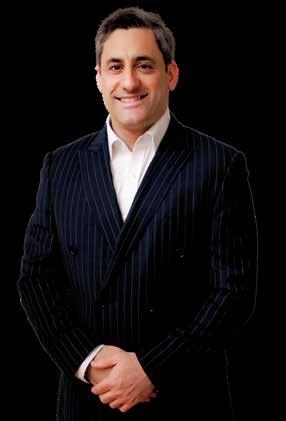

Continued on page 4







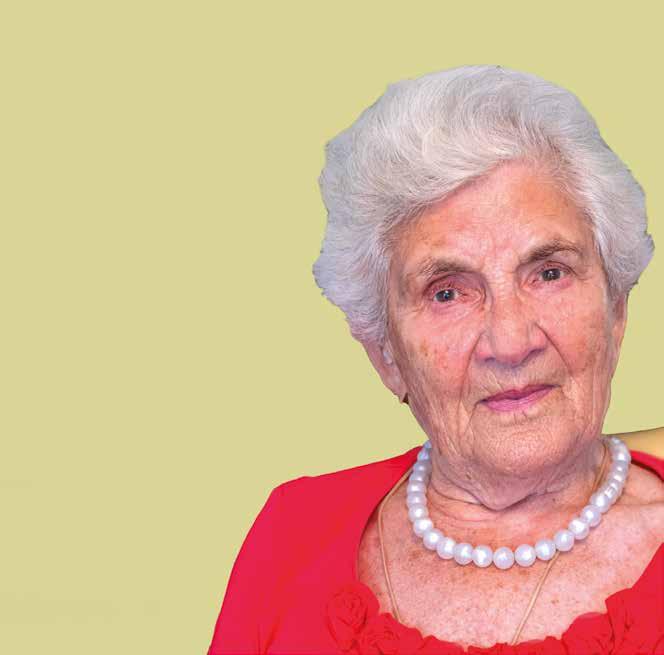

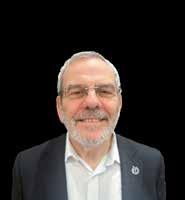
Continued from page 1
He told delegates: “This resolution is a landmark because it speaks about the rehabilitation of Gaza and international force that will uproot the Hamas militants. We can offer a future to the people of Gaza with international agencies and financial institutions. This is an incredible moment in world politics.”
Looking ahead, Herzog added: “We have to have the vision of the day after, we have to seek peace in something that we believe in. President Trump has reignited the ability to think about it in a way which is more cautious taking into account developments on the ground, how we attend the security needs of Israel and what we do with Gaza… One thing has to be clear, we have to make sure that there is no violence of any kind. There has to be much more intensive dialogue between Israelis and Palestinians, disregarding the political arena and the brainwashing that we see, for example, in the Palestinian media against Israelis. We have to enable a future of hope.”
Herzog called on the international community to promote a peaceful future in the region. He said: “I hope that Europe will move away from its old assumptions of the blame game against Israel. Say clearly and frankly to the Palestinian leadership and nation, go for reforms, stop paying terrorists, stop encouraging the rhetoric that encourages terrorists, let’s sit down and find new solutions to how we live together in the future.” Herzog said he was “extremely disturbed” by rising

antisemitism globally. He observed: “All this starts with the Jews, but it never ends with the Jews. What frightens me is that you see people totally brainwashed in demonstrations against Israel and they link it with Jewish communities. Then you have a huge rise and attacks on synagogues, on Jewish schools, on Jewish children. Look what happened in Manchester two months ago. Nations have to operate strongly on all levels, law enforcement, adjudication, but most importantly, education.”
UN Secretary General Antonio Guterres said the ruling was essential to translate diplomatic momentum into concrete and urgently needed steps on the ground. The Palestinian Authority’s Foreign Minister Varsen Aghabekian Shahin praised the resolution’s adoption as a “first step in a long road towards peace”. Hamas rejected the resolution.
Whilst the resolution has passed, 70 percent of Israelis in a new poll released Monday by the Jerusalem Center for Security and Foreign Affairs oppose a Palestinian state along the 1967 borders. This is the highest level recorded by the Center since the 10/7 terror attack.
Among Jewish Israelis, 79% reject the notion. If there is an accord with Saudi Arabia, 62% remain opposed. Of Jewish Israelis, the figure rises to 73% while 56% of Arab Israelis back the idea.
Regarding an international peacekeeping force in Gaza, 62% back a Western-led international force controlling the region. But 26% want Israel to have sole military control over Gaza.


BY ADAM MOSES
University College London has reopened an investigation into a Jewish student who has endured horrendous antisemitism.
Reported incidents in the opening months of term at events include protests, offensive imagery and antisemitic rhetoric.
Disturbing hate comments include “United in the struggle to abolish Zionism off campus”, “Two, four, six, eight, Israel is a racist state,” “From the river to the sea, Palestine will be free”, “Zionism will fail. Palestine is not for sale”, “Zionism off campus” and “Crush the Zionist settler state”.
Another post depicts the Prime Minister controlling UCL’s Provost with puppet strings.
The university has apologised to the student who is being supported by Campaign Against Antisemitism.
UCL President and Provost Dr Michael Spence said this type of mistake “should never have happened”.
The Jewish student reportedly told CAA: “When I chose to attend UCL, I did not expect a university that seems to welcome antisemitism more than its Jewish students. In the past month, I have been accused of supporting genocide, personally blocked from walking through campus, and harassed simply for being Jewish, all while UCL security looked on.
These are just a few of the many incidents I have reported, all of which have gone unaddressed and unpunished. UCL consistently treats the Jewish students as the problem, we cannot publicise event locations, are told to advertise only through private channels, and despite having extra UCL security and police onsite, a recent event was disrupted by ‘peaceful protesters’ chanting antisemitic slogans and blocking the building’s entrance. It is high time UCL confronts the rampant antisemitism on campus rather than continuing to create an environment that fosters it.”
A CAA spokesperson said: “Jewish students and staff deserve better than this. For all their virtuous rhetoric about zero-tolerance and anti-racism, our universities have become hotbeds of Jew-hatred, where Jewish students are abused, Jewish societies are trolled and Jewish institutions are vandalised. Campuses have turned into venues for the glorification of antisemitic terrorism and support for groups opposed to Britain and its values. Only 3% of British Jews are confident that if a Jewish student reported an antisemitic incident on campus, the university administration would take appropriate action, according to our representative polling. The situation is dire, and there is no indication that things are changing for the better.”
“We are deeply sorry for the distress caused by the correspondence with our
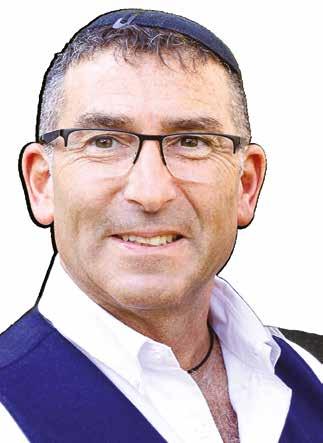
casework team and we have apologised to the student,” Spence reportedly noted. “A mistake like this should never have happened and we have reopened our investigation into this complaint as a matter of urgency to ensure it is fully and properly addressed.
“Where necessary and appropriate, we will not hesitate to take disciplinary action and report incidents to the police, as we have already done against a number of students in relation to antisemitism. We have also taken steps to ensure all our casework staff receive additional training so that they can manage these issues effectively and prevent similar incidents in future.”
Regarding protests over recent months, Spence said the university had taken
many measures to protect the safety and wellbeing of our community, including working closely with the Metropolitan Police and restricting access to our Bloomsbury campus to individuals with valid UCL ID.
“Regrettably, like many UK universities, we continue to confront incidents of antisemitism and we are committed to eradicating this from our campus,” Spence added. “UCL remains absolutely committed to taking the appropriate action and ensuring our campus is a safe, respectful, and inclusive environment for all members of our community.”
Any students concerned about antisemitism on campus call CAA on 0330 822 0321 or e-mail campus@antisemitism.org
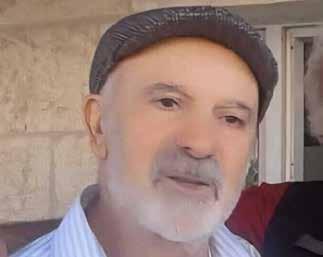
Kiryat Arba resident Aharon Cohen, 70, was killed, and three others were wounded in a ramming and stabbing attack at the Gush Etzion junction on Tuesday.
One woman in her 40s was severely wounded, and two others, a 30-yearold and a 15-year-old, were moderately wounded in the terror attack. Both terrorists were shot dead at the scene.

More than 330 women from across the Jewish community came together last Tuesday for Chana’s Annual Ladies Brunch - another inspiring event that raised vital funds and awareness to support couples facing infertility and loss. The brunch provides an important space for the women in our community to acknowledge the pain of infertility. Like every year, the room was filled with
empathy and a quiet strength that was moving and uplifting, showing Chana couples that they have tremendous support and will not be left to struggle alone.
The morning was opened by Trustee and Chair of the Brunch Committee, Lissie Morris, who welcomed guests and introduced the speakers. Chana’s Honorary Executive Director and Principal Social Worker, Carolyn Cohen, followed, shedding light on Chana’s professional services and the tremendous impact they have for couples struggling to start a family.
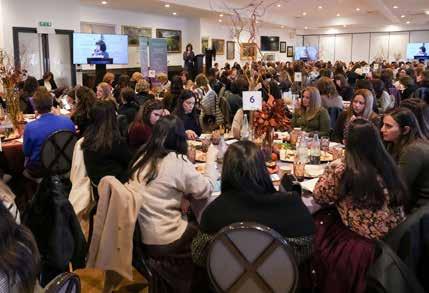
This year’s theme, “Hope After Loss,” shone a light on one of the most painful and
often unspoken aspects of infertility - the heartbreak of baby loss. The most powerful moment of the morning came when a former Chana client, Joanna, courageously shared her journey: from the devastating loss of her first son to the eventual joy and relief of welcoming two healthy children. Her story, raw and inspiring, highlighted the deep pain of grief, the strength of resilience, and the vital role that Chana played in guiding her and her husband through their darkest days.
“We were completely broken and didn’t know where to turn. Chana stepped in and held us up when we were at rock bottom. They gave us strength, guidance, and hope. Without them, we don’t know where we would be today.”
As she finished speaking, a photo of her two gorgeous children appeared on the screens - an emotional moment that brought tears to many eyes.
Chana currently supports more than 311 clients across the UK, providing medical, emotional, financial, and Halachic support at every stage of the fertility journey. Chana’s service include support through investigations, fertility treatment, miscarriage, baby loss, fertility preservation after a cancer diagnosis,
psychosexual difficulties, as well as other reproductive health issues.
As demand for Chana’s services continues to grow, the brunch served as a powerful reminder of how much the organisation relies on community generosity.
Lissie Morris shared: “Every family that finds hope through Chana is a testament to the strength and generosity of our community, but there are still so many couples who need our help. Your support enables us to ensure that no one walks this journey alone.”
Chana extended heartfelt thanks to the Brunch Committee for making this event another wonderful success; Flowers by Miri for the elegant décor; Ezri for providing delicious food; and generous sponsors Wissotzky Tea and Norman’s Fruit, as well as those who provided raffle prizes.
If you were unable to attend the brunch, you can still support Chana’s vital work by donating to help couples struggling with infertility and loss.
To donate or find out more, visit www. chana.org.uk/donate.
AJEX, the Jewish Military Association, held its Annual Remembrance Parade and Ceremony on Sunday, with more than 2,500 people marching down Whitehall to the Cenotaph to honour Jewish veterans and all those who have served in HM Armed Forces. Crowds of spectators lined the route, many wearing family medals, reinforcing Remembrance as a shared community responsibility and a continuation of loved ones’ legacies. This year’s Parade, themed Carry Them Forward, Marching Together, marked a
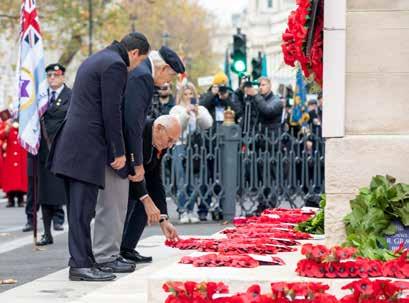
landmark year: the 80th anniversary of the end of WWII, the 80th anniversary of the liberation of Bergen-Belsen and the 85th anniversary of the Battle of Britain. As fewer survivors and WWII veterans can attend, this is likely the last decade of major anniversaries in which they will be present in person, giving the AJEX Parade an extra poignancy. The event carried added significance in a climate of rising antisemitism, with veterans and serving personnel marching as proud British Jews and honouring a legacy of service that spans generations.
AJEX National Chair, Dan Fox, hosted Reviewing Officer Brigadier Melissa Emmett MBE, Defence Minister Lord Coaker and Phil Rosenberg of the Board of Deputies. The Parade was commanded by Jon Tyler and Lt Col Adam
Shindler MBE, with the Cenotaph ceremony conducted by Chief Rabbi Sir Ephraim Mirvis KBE, Rabbi Major Simon Taylor and Rabbi Nathan Godleman. Music was provided by the Band of the Household Cavalry, supported by the JLGB Marching Band.
Defence
Minister Lord Coaker, laid a wreath in honour of all British Service Personnel who have died in conflicts since the Second World War, said:
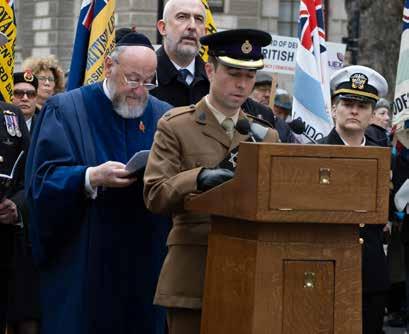
“It was a privilege to stand at the Cenotaph today with Jewish veterans, their families, and young people from across the community. This parade is a powerful reminder of the immense contribution of Jewish servicemen and women throughout our country’s history. As we mark 80
years since the end of the Second World War, we remember their vital role in securing the freedoms we all cherish. It is our responsibility to ensure that legacy of service is never forgotten, and to stand in solidarity and gratitude with the British Jewish community, today and always.”
Continued on page 9
Continued from page 8
The wreath-laying ceremony brought together survivors, veterans and community representatives in a deeply moving moment of Remembrance.
Holocaust survivor Peter Lantos, 100-yearold D-Day veteran and Bergen-Belsen liberator
Mervyn Kersh, and Zvi Noe jointly laid a wreath marking the 80th anniversary of the liberation of Bergen-Belsen.
Ivan Sugarman, an RAF National Service veteran, laid a wreath with Rob Rinder, Remembering all those who fought in the Battle of Britain on its 85th anniversary.
our country today. In a period of increasing antisemitism, standing together in Remembrance has never been more important.”
AJEX Chief Executive Fiona Palmer

Brigadier Melissa Emmett MBE, the Reviewing Officer, laid the AJEX National Wreath in memory of all Jewish personnel who have died in the service of the Crown.
Ken Smith, National Service veteran and Lisa Ronson laid a wreath to mark the 80th anniversary of VE Day. Saul Taylor, President of the United Synagogue and Richard Berke – both grandsons of VJ veterans laid a wreath for the 80th anniversary of VJ Day. A wreath was also laid by Rabbi Josh Levy in honour of all Jewish Chaplains who have served in HM Forces. Students from JFS, JCoSS, Immanuel College and Hasmonean Schools then laid poppy posies, symbolising the passing of the baton of Remembrance to the next generation.

Dan Fox said: “Today we did more than Remember, we carried forward a legacy. This Parade showed the strength, unity and pride of our community, honouring the 120,000 Jewish servicemen and women who served in the World Wars and all those who continue to defend
A woman who admitted responsibility for the horrific crash that killed a young mother and two of her young daughters in New York was sentenced this week to serve between three to nine years in jail, a punishment that the victims’ family says falls far short of justice.
Miriam Yarimi, 33, pleaded guilty last
added: “In a world where the rise in antisemitism is challenging our values and communities, this Parade is our answer: a public and proud declaration of who we are, where we come from, and what we stand for. Our theme this year ‘Carry them Forward, marching together captures the spirit of generations united in purpose. Thank you to everyone who joined us today”.
AJEX’s educational initiative, Remember in Red, saw Jewish schools across the UK mark Remembrance with ceremonies, assemblies and visits from veterans and serving personnel. AJEX Shabbat was observed across many synagogues, strengthening the community’s collective act of memory.
CST officers were present along the route, working closely with police and organisers to ensure a safe and secure event for all.
For more information on AJEX and to support its ongoing work, visit www.ajex. org.uk.
To watch a recording of the Parade, visit https://www.youtube.com/@AJEX_JMA/ streams
month to manslaughter for the March 29 tragedy that claimed the lives of 34-yearold former Londoner Natasha Saada and her daughters Diana, 8, and Deborah, 5, A”H.
Their four year old son Philip, was critically injured with skull fractures, brain bleeding, and the loss of a kidney, however he later recovered.

April 1–8, 2026
• Family-friendly Atmosphere
• Exquisite Kosher Gourmet Cuisine
• Engaging Speakers & Entertainment
• Spa, Wellness Center & Swimming Pool
• Inspiring Tefilla & Shiurim
• Kids Club with Daily Program
• Exceptional Service & Warm Hospitality

• Guided Day Tours
• Afternoon Tea & Sweet Hour
• Communal & Private Seders
• Full Board on Chag & Shabbat
• Private Beach & Water Sports
• Poolside Snacks & Drinks
• Gebrochs. No Kitniyot






Israel Maven Tours has over 15 years of expertise in crafting personalized, high-quality experiences across Israel. This Pesach, join us for an incredible time together with your family.

BY DAVID SAFFER
Thousands of delegates from around the world attended the 42nd International Conference of Chabad-Lubavitch Emissaries in New York.
Over 6,500 Chabad emissaries and guests attended five days of workshops, prayer and study.
Emissaries vowed to continue the legacy of the Rebbe, Rabbi Menachem M. Schneerson.
At the gala finale there were anecdotes from Rabbi Mendy Kotlarsky, Director of the International Conference of Shluchim whilst three emissaries led psalms in memory of their fathers, Rabbi Moshe Herson of New Jersey, Rabbi Abraham Korf of Florida and Rabbi Sholom Lipskar of Bal Harbor, Fla.
Rabbi Yehuda Krinsky, chairman of Chabad’s educational and social-services arms, highlighted a recent study that found the largest increase in Jewish engagement with Chabad after the October 7 terror attack. And Rabbi Yaakov Raskin of Jamaica, who survived Hurricane Melissa in October spoke about how he never considered abandoning his community.
“Even as the walls shook, I knew I was not alone,” he said. “I remembered the Rebbe’s words, ‘A Jew does not find himself in a situation, a Jew makes a situation’.”
US Marine Corps Sgt. Ben Crage and Air Force Chaplain Rabbi Levi Pekar reflected on the Rebbe’s call to stand up for Jewish life on the front line.
For Crage, the Rebbe’s teachings offered a framework to deepen his Jewish identity while serving.
And in a poignant moment, a Torah scroll, dedicated to the memory of Rabbi Moshe Kotlarsky, was completed by the scribe, assisted by George Rohr.
The gala culminated with the annual ‘roll call’ from emissaries globally. The call was limited to continents and regions, a reflection of the growth of
Chabad.
Rabbis from 111 countries and over 6,000 communities took part in the iconic annual group portrait in front of ChabadLubavitch World Headquarters during a plethora of activities.
“This year’s conference comes at a time when Jewish people worldwide need reassurance and hope,” said Rabbi (Mendy) Kotlarsky. “As the global Jewish support system, Shluchim have been on the frontlines, addressing the needs of their communities nonstop.
The photo sends a message that the Jewish people are alive, strong, proud, and we aren’t going anywhere.”
Before the banquet, he added: “Around the world, Jews are asking what the future holds. Here you see the answer. Thousands of Shluchim and their visionary partners are fulfilling the Rebbe’s vision of building, teaching, supporting and uplifting every Jew. This gala celebrates a dynamic movement that will carry our people forward with confidence and hope.”
Lounges in the past two years.
On the third day of conference emissaries queued to visit the Ohel, the most visited Jewish sacred site outside Israel, to remember the Rebbe.
“These shluchim are carrying the weight of the Jewish people,” said Rabbi (Mendy) Kotlarsky. “From war-
the Jewish community and tourists in Taiwan.”
The Pan Haklali, was read by Rabbi Shmuel Kaplan, Head Shliach of Maryland, on behalf of all Jewish communities worldwide.
“The atmosphere was deeply moving and reflected their dedication to their
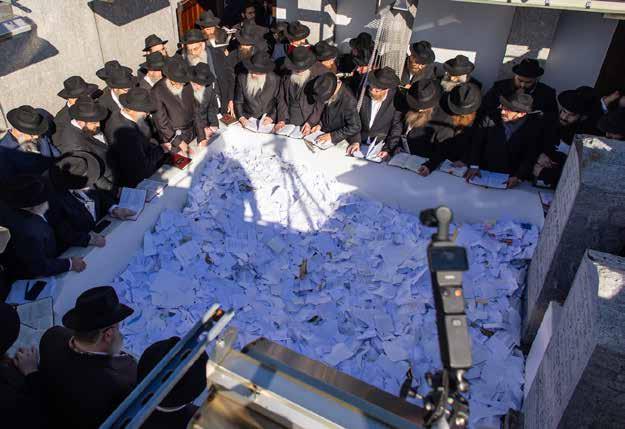
The event was streamed live to a global audience. Each year, the conference is a springboard for new initiatives, from new Chabad Houses and Mikvaos to innovative platforms.
Last year, days after the murder of Shliach Rabbi Zvi Kogan, seed funding for 100 new centres were announced in his memory.
One hundred and fifty Shluchim couples have begun posts and over 30 Chabad centres are under construction. This follows the launch of 40 CTeen
torn countries and natural disasters to everyday human struggles, they absorb it all. But here, at the Rebbe’s resting place, they draw the strength they need to keep going, to return home and be the ones who uplift, who rebuild, and give hope to millions of Jews across the globe.”
For Rabbi Leivy Srugo, Chabad Young Professionals in Taiwan, added: “Visiting the Rebbe’s Ohel during the Kinus gives me so much strength. “Once a year, I get to come and receive, so I can give back, and increase our efforts to be there for
communities and the Rebbe’s vision,” said a Chabad spokesman.
Panels discussed challenges facing Jewish communities including antisemitism, mental health, Chabad Jewish afterschool programs, the growing number of Jews choosing to marry Jewish, record Israeli migration to the Diaspora, gamifying Jewish education through JewQ championships in Latin America, Australia, France and the United States and harnessing AI for Jewish outreach.

BY ARYEH SAMPSON, BACP ACCREDITED PSYCHOTHERAPIST
Up to half of all marriages in many Western countries now end in divorce. Sadly, this growing problem is also affecting our own community — yet it is often ignored.
As a psychotherapist specialising in couple counselling, I am frequently struck by how little preventative education and practical support people receive before or during marital difficulties. Research shows that couples wait, on average, six years before seeking professional help — far too long for many relationships to survive the damage caused by ongoing conflict or emotional distance.
My goal in writing this article is to raise awareness of this silent crisis and to share some of the tools I use with couples in my practice in order to offer hope that relationships can be repaired and strengthened.
I use a three-step process to help couples rebuild their connection:
The first step is understanding the dynamics of your relationship and identifying the deeper roots of its difficulties. Most relationships begin with a sense of excitement and emotional closeness — the honeymoon stage. But as life’s pressures increase, that closeness often fades, and tension begins to surface. Power struggles can develop, with each partner fighting, often unconsciously, to have their needs recognised.
A common pattern occurs when one partner is more direct and the other more reserved. The direct partner voices their frustrations, while the other withdraws. The more the first person pushes, the more the second retreats — leading both to feel unheard and disconnected. Other couples may find that both are fiery, or both tend to shut down emotionally.
It’s also vital to recognise triggers — how unresolved pain from childhood or past relationships can be projected onto your current partner. This explains why some arguments escalate from zero to one hundred in seconds.
Learning new communication skills is one of the most powerful ways to transform a relationship.
A key principle is to stop negative criticism and learn to truly listen. One helpful technique I teach is mirroring: before responding, each partner repeats back what the other has said, to ensure understanding. This simple step builds empathy and diffuses defensiveness.
It also helps to speak from your own perspective — using statements such as “I feel…” or “In my opinion…” rather than accusatory phrases like “You always…” or “You never…”. When both partners feel heard and respected, trust and cooperation begin to grow.
The final step is to rebuild emotional closeness by increasing acts of care and appreciation.
Small gestures — spending quality time together, expressing gratitude, being affectionate and supportive — create positive emotional momentum.
Dr. Gary Chapman, in his book The Five Love Languages, identifies five main ways people express and receive love: Gift Giving, Quality Time, Physical Touch, Acts of Service, and Words of Appreciation. Understanding your partner’s primary love language helps ensure both of you feel valued and loved in ways that truly resonate.
There is much more to say than can fit in a short article. If you’d like to explore these ideas further, I have created several short videos on my YouTube channel: @ aryehsampson1458.
If you or someone you know is struggling with relationship issues, I strongly encourage you to seek professional support as early as possible. With the right guidance, many relationships can heal, deepen, and flourish once again.
Aryeh Sampson is a BACP-accredited psychotherapist based in North London, offering sessions in person and online worldwide. He provides a free, confidential 30-minute initial consultation and can be contacted at 07727 697181 or aryeh.sampson@gmail.com. For more information, visit www.aryehsampson.com


BY DEBBIE GOLDFISCHER
Israel’s housing market showed a measured slowdown in late summer, with home prices dipping slightly while transaction levels strengthened and the supply of new homes reached a record high. CBS data for Q3 2025 reveal modest price declines, a rebound in sales activity following a subdued June, and expanding inventory, led by major districts such as Tel Aviv and the Center. New-home demand rose sharply in areas like Sde Dov, rental prices continued to climb, and construction costs increased, offering a detailed picture of a market adjusting gradually across multiple indicators.
The Central Bureau of Statistics (CBS) has released its latest figures on Israel’s housing market, providing updated information on price movements, transaction levels, and new-home supply for August through September 2025. The data reflect a market undergoing gradual adjustment, with continued price declines, increased transaction activity, and further expansion in the inventory of unsold new homes.
Home prices fell slightly in late summer. When comparing transactions from August–September 2025 to those from July–August 2025, national prices declined by 0.3%. Over the same period last year, prices were 0.5% higher. At the district level, during this period, Jerusalem and the North recorded modest increases of 0.5% 0.3%, respectively. In contrast, prices declined by 1.2% in Haifa, 0.3% in the Southern District, by 0.1% in the Tel Aviv District, and by 0.9% in the Central District.
Prices of new homes, excluding government-subsidized transactions, also moved slightly lower. Between August–September 2025 and the previous two-month period, prices of new homes fell by 0.3%.
While national home prices fell by 0.3% in the latest monthly comparison, yearover-year data shows increases in most districts, led by the North (+7.4%), Jerusalem (+6.3%), and the South (+2.3%). The Tel Aviv (-2.8%) and Central (-1.6%) Districts recorded annual declines.
Despite moderating prices, market activity strengthened. Between July and September 2025, a total of 23,330 homes were sold across Israel—15.4% more than in the preceding three-month period. After adjustment for Operation Rising Lion, which took place in June, the increase was 6.7%. Compared with the same months in 2024, however, total transactions were 12.5% lower.
New-home sales accounted for 8,780 transactions, representing 37.6% of all activity and reflecting a 23% increase over the previous quarter. While 436
new units were sold in Jerusalem during the quarter, a striking rise occurred in Tel Aviv–Jaffa, where 608 new homes were sold, an increase of more than 53% compared with the previous quarter. The CBS attributes much of this surge to the substantial release of units at Sde Dov, where large-scale construction and renewed marketing activity have driven demand higher.
Second-hand homes accounted for the remaining 14,550 transactions, up 11.2% over the same period. In several cities— among them Jerusalem, Haifa, Be’er Sheva, Tel Aviv–Jaffa, and Ashkelon—more than 700 second-hand homes changed hands during the quarter.
The CBS notes that September 2025 included the High Holidays and Sukkot, reducing the number of working days and contributing to lower monthly transaction totals than in previous periods. Examining the broader trend, the CBS found that while sales volumes declined at an average monthly rate of 1.2% between July 2024 and July 2025, the past two months showed a shift toward positive movement, with an average monthly increase of 0.6%. Although it is still too early to confirm a sustained trend, the figures indicate a potential stabilization in activity.
The supply of new homes continued to grow. At the end of September 2025, there were 83,920 unsold new dwellings nationwide, an increase of 0.9% from August and 20.3% from the same month in 2024. Based on the pace of sales, this stock corresponds to 28.8 months of supply. Inventory levels were highest in the Central District, where 26,740 unsold units remained on the market, followed by the Tel Aviv District with 20,390. Among major cities, Tel Aviv–Jaffa had 10,800 new homes still available for purchase at the end of September, while Jerusalem had 8,090. The extensive construction pipeline in Sde Dov contributes meaningfully to this inventory, reflecting the scale of ongoing redevelopment in that area.
Further insight comes from average transaction values. In the second quarter of 2025, the average home price nationwide was around 2,200,000 NIS. This represents a 1.9% decrease from the previous quarter and a 2.5% decline from the second quarter of 2024. Among major cities, Tel Aviv, Herzliya, and Jerusalem all posted average prices exceeding 3 million shekels, whereas cities such as Be’er Sheva and Ashkelon remained well below that level.
RENTAL MARKET TRENDS SHOW CONTINUED INCREASERICES
Alongside data on home prices and
transactions, the CBS also reported on rental trends, showing continued rent increases nationwide. For tenants who renewed existing leases, rents rose by 2.5%. The increase was more pronounced among new tenants, with rent turnover resulting in an average increase of 5.5%. These figures reflect ongoing demand pressures in the rental market, even as purchase prices have moderated during recent months.
The CBS also published updated figures for the residential Construction Cost Index, which measures changes in the cost of building materials and labour. In October 2025, the index increased by 0.1% compared with the previous month. Since the beginning of the year, construction input costs have risen by 4.3%, and over the past twelve months, they have increased by 5%. The rise is driven primarily by a 9.2% increase in labour costs and a 2% increase in the cost of materials and products used in residential construction. These shifts influence developers’ cost structures and may affect construction timelines,
building costs, and the economics of new projects over time.
Debbie Goldfischer is the founder and CEO of Buyitinisrael and host of the Israel Real Estate Podcast: On The House. A prominent figure in Israeli real estate since 2004, Debbie has spent the past two decades helping foreign buyers successfully navigate the property market in Israel. In 2020, recognizing the lack of reliable English-language resources, she launched Buyitinisrael. com, which has quickly become the leading platform for English speakers looking to buy property in Israel. In addition to leading the platform, Debbie personally assists buyers in finding the right property—whether new or resale—anywhere in Israel. To get in touch, email debbie@buyitinisrael.com.

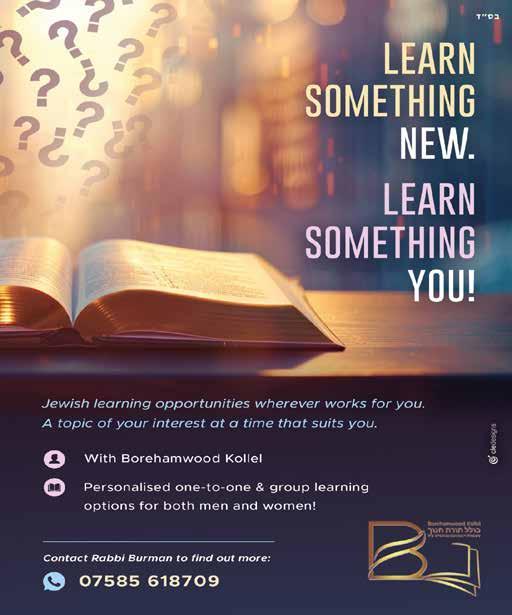
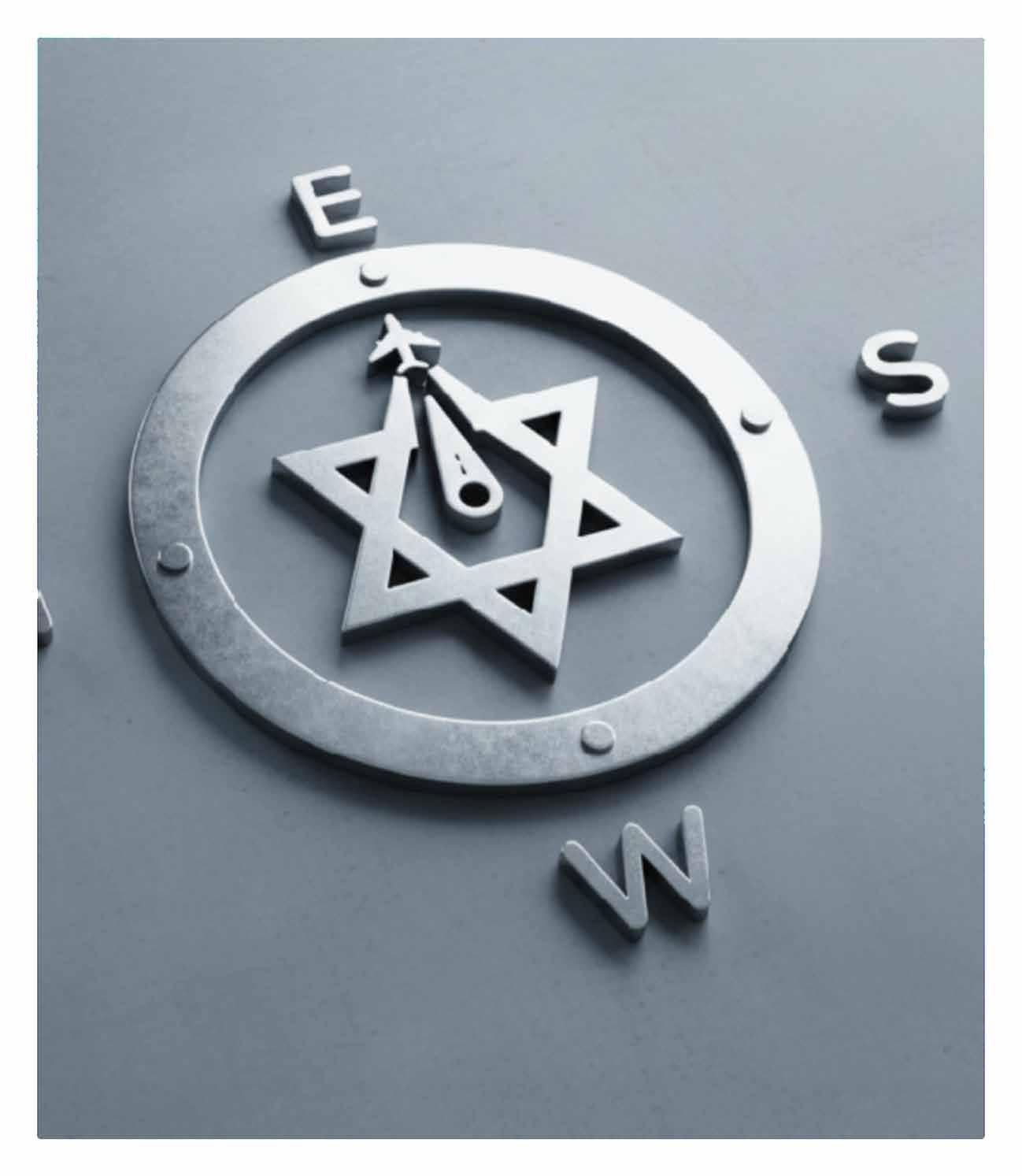
BY DEBBIE MARKS
As I sat on a park bench, listening to a fellow mother casually mention that she’d signed up for a chinuch course, I felt a surge of admiration. Here was someone who was dedicated to being a hands-on parent, looking for ways to improve and provide the best for her children. There seemed to be a collective admiration for this soon-to-be Super Mum!
Fellow Mother Number 2 casually dropped that she’d signed up for a marriage course. I wonder if she was hoping for those same wistful stares. Instead, the atmosphere shifted. Uncomfortable silence, filled with awkward smiles and whirling thoughts, as the unspoken question hung in the air: “Is everything okay?” Why is seeking help for our marriage surrounded by stigma? Why can’t we view it as a sign of strength, rather than weakness? In a community that values shalom bayis as a cornerstone of happiness, why do we hesitate to admit to our efforts in the single most important relationship?
We’re conditioned to believe that if everything is fine, you do not need to work on it. But as Jewish women, we are constantly putting in effort above and beyond. (Yomtov Cookathons and sleepless night shifts aside.) Marriage, like any other aspect of our lives, requires effort. (I hear your groans…more effort? No thanks!) But what if the effort was minor and the payout was huge? Now I’ve got you. Just as we wouldn’t expect to become proficient in a new skill without learning and practising, why do we assume that relationships should come naturally?
Before we put in any ounce of effort (you can relax for one more week), can we reframe our thinking? Can we drop the stigma and celebrate the commitment? It is not shameful, it is growth. When you look up a recipe, no one is thinking, “Oh boy, that woman can’t cook!” (Perhaps, for other reasons,
they’re thinking that.) But seeking to improve doesn’t have to mean the current way is failing. Seeking help is not synonymous with a struggling relationship; it’s a proactive step to creating an even better relationship.
Let’s crush this stigma. Relationships take work, and seeking help is a sign of strength, not weakness. Agree? Good! Now, who is joining my Marriage Workshop?!
Now that the stigma has been crushed, thanks to The Jewish Weekly and last week’s column, you can come out of the locked room where no kids are looking over your shoulder (is there any such room?) and read this openly. On second thought, if you are in a quiet room without kids, stay there a little longer. Enjoy the quiet. (Yes, I considered adding a short meditation here for you.) Now that you can openly read about marriage, without the anxiety that someone might see, let’s discuss a major slip-up in many marriages, except mine, of course.
Yelling. (I’m not talking to you, reader- this is for all the other people reading this, don’t worry.)
“But I always start nice; if I don’t yell, nothing gets done.” Sound familiar? I get it. Yelling is a great way to get things done, especially the way you want them done. It’s also great for creating an atmosphere of fear and distrust. In fact, it’s one of the best ways to create distance in a relationship.
As I sit on my preachy chair, speaking down to all those who can’t quite get a grip on themselves (unlike me, of course), yes, it’s that simple. You want a safe, calm home? Just. Don’t. Yell. Sorry, one second (…I’M IN THE MIDDLE OF WRITING, CAN YOU CLOSE THE DOOR!!...) where was I?
But really, I’m not saying don’t yell. I’m just saying, don’t yell right now. Tell yourself, “I will yell, but in 30 seconds.” When the time comes, tell yourself that again. Or if you’re too clever for those kinds of mind games, ask yourself, “Is it
more important to [get this done/express myself/fill in blank] or to stay close to this person?” For the times when you’re really raging, perhaps something quicker like, “I choose closeness.” Or, telling yourself “I’m a person who speaks calmly,” in the hope that this message might penetrate through the thick smoke emanating from your ears. Or here’s a good one: “How would I react if my mother-in-law were standing here?” Whatever works for you. Just figure something out because a wife who yells gets to be married to a husband who yells back or a husband who retreats, neither of which is so attractive. DON’T YOU AGREE?
I read this column, but I don’t need to. I have a great marriage. In fact, it’s so good, I can be completely myself, I’m so authentic. Buzzword. I think that’s my worst buzzword. It’s waved around as a flag of closeness, but can we take a step back for one second? Is it possible, maybe, perhaps that your authentic self is not so lovable?
Living true to my authenticity means I don’t need to walk around on eggshells. The idea of walking around on eggshells has negative connotations. But perhaps eggshells are not so bad? (Except when that getaway piece crunches between your teeth- then they’re bad.) Of course, we need to be comfortable around each other. But being comfortable is quite different from being completely myself. If I’m authentic, I’m true to myself, and I’ll jolly well express my true feelings in whatever way feels natural. Can we squeeze in middos work and self-improvement?
If I’m walking on eggshells around the people I love, it means I don’t want to hurt them. (Well, if it’s around kids, it probably means I don’t have the energy for a tantrum now.) It means I understand that this relationship is valuable, and even if I’m thinking or feeling something, I will tread carefully. It means I might ask myself before I express myself, “Is this the best time to express myself? Is
this the best place? Is this the best way of expressing myself?” It might mean that I whisper to myself, “Don’t sweat the small stuff.” It might mean I will ask myself, “Will this bring me closer or further away?” It might mean I introspect and reflect on my authentic self and feelings, and maybe, just this once, choose inauthenticity.
Ladies, make sure you’re sitting down. You’re about to read something that will knock your socks off. Ready?
Marriage is supposed to be enjoyable. It ain’t just about getting through life and staying married, we’re supposed to also enjoy marriage.
You okay? Still reading? I know what you’re thinking. But life is so frazzled, the kids are so crazy keep me so busy, work expects too much, evil gremlins fill the laundry basket when I’ve just folded the last clean vest, suppers don’t make themselves. Really? Enjoy marriage? But yes, the Creator of the world who loves you and wants your best also wants you to enjoy your marriage.
There’s the yearly long-weekend-getaway idea, there’s the weekly-date-night idea, and there’s the take-up-a-hobby-together idea. They’re all wonderful ideas… as long as they happen, which they don’t. Of course, I encourage carving out time for consistent dates, even if you’re just sitting on the couch together phone-andkid-free, with your eyes somewhat open. But here’s another simple idea, and it starts with just a thought.
How can I make my spouse happy in this moment? It might be one text message. One cup of coffee. A favourite dinner (for the A* students out there.) One smile. A spontaneous walk. When we put the work in, we enjoy the product more. Any small effort flips the I need to get through this day narrative to how can I enjoy my marriage today?
If you follow Israeli politics with equal parts fascination and disbelief, this is the course you’ve been waiting for. Israel’s Prime Ministers – Politics, Power and Personality is a front-row seat to the decisions, dramas and leaders who built, and battled over, the modern state of Israel. Taught by leading Israel educator Robin Moss, the series spans Israel’s first 77 years and reveals how each prime minister faced war and diplomacy, unity and division, ideology and reality. It’s
accessible, sharp and packed with the kind of insights that make you see the headlines differently.
“Whether you’re fascinated by Golda Meir’s fall from grace, Begin’s dramatic shift from fighter to peacemaker or Netanyahu’s long reign as ‘King Bibi’, there’s something for everyone,” said course teacher Robin Moss. “In only 77 years, there is so much to learn about the politics and personality of Israel’s extraordinary leaders.”
The FREE opening taster on 25 November launches the series with a deep dive into David Ben-Gurion; the myths, the manoeuvring and the monumental decisions that turned a fragile dream into the State of Israel.
“We are proud to be offering such a comprehensive study of the thirteen men and one woman who have shaped Israel’s exceptional history, which will enable you to have a greater understanding of the issues and challenges affecting the
country today,” said Joanne Greenaway, Chief Executive of LSJS. “ For more information please email lsjsadmin@lsjs.ac.uk or call 020 8203 6427.



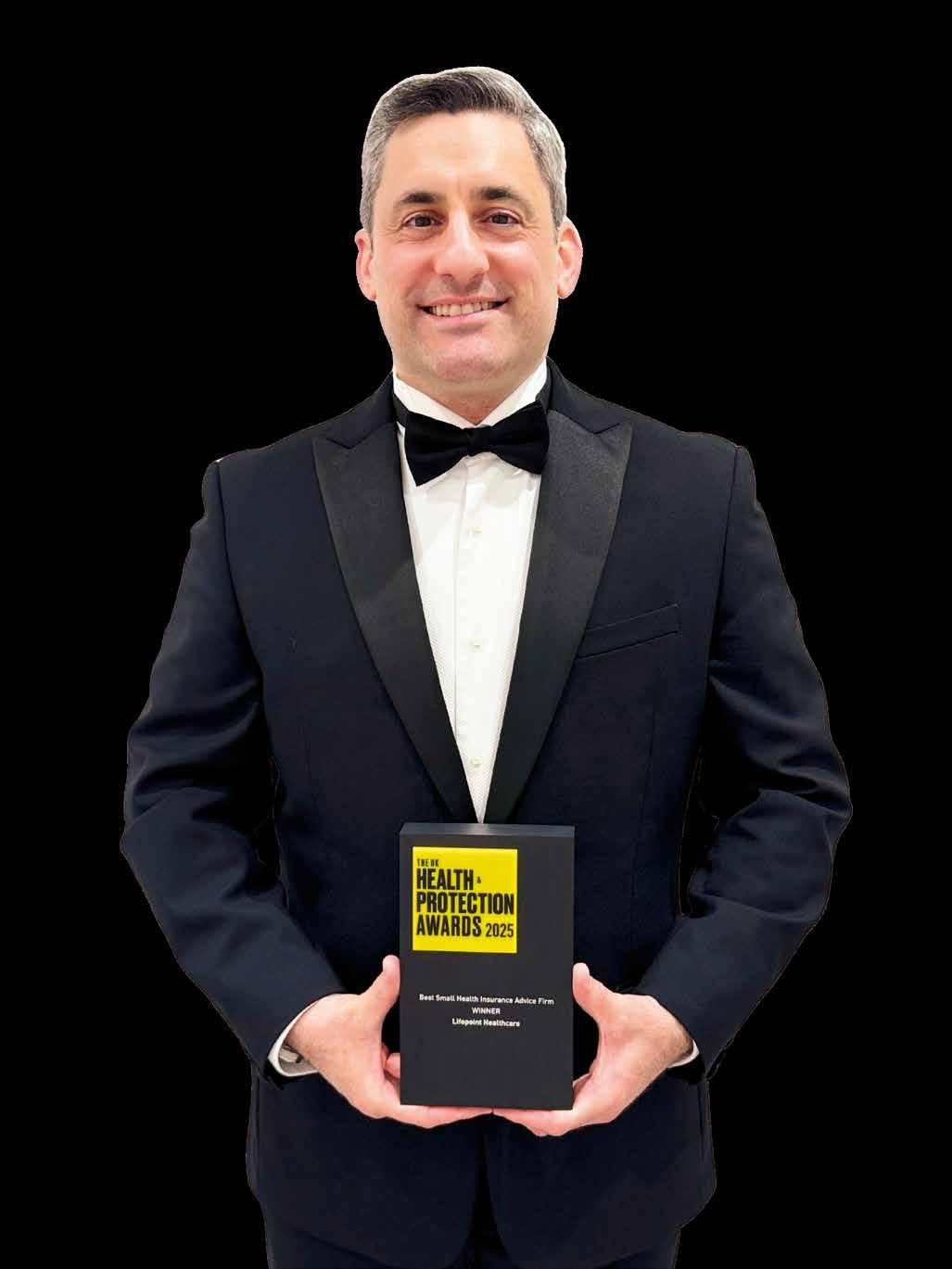

BY GARY MOND
The National Jewish Assembly (“NJA”) had the honour and the pleasure of hosting Israel’s Diaspora Minister Amichai Chikli on Monday evening this week. The talk he gave us related to the invitation, which was supported by key figures in the Israeli government, to host British political activist Tommy Robinson. However, this action has provoked much controversy in sections of the British Jewish community. It is time that Mr Robinson is given the support that he deserves in his capacity as being a great friend to world Jewry.
Chikli has embraced his role as diaspora minister and he understands the threats to Jewish communities. He is in particular eager to listen to communities’ concerns. He spent an hour with us during Chanukah 2023, in the depths of our agony over the Gaza war and the hostages, explaining to us what Israel was doing, answering questions and lighting the candles with us on a Zoom call from Jerusalem. He then gave me some of his time when I was in Israel the following year and, best of all, he entertained our
Israel solidarity mission of NJA members in his office in Jerusalem two months ago.
One of Chikli’s key achievements has been to organise a major conference on antisemitism in Jerusalem earlier this year. This was attended by many senior politicians from around the world, Sadly, however, the event was boycotted by a number of prominent ‘progressive’ Jews who refused to attend a conference where those whom they regarded as “far right” were also present and speaking. Additionally, the Chief Rabbi was also advised not to attend.
For me, such a boycott represented a low point in the battle against antisemitism. If someone – anyone, be they leftwing, right-wing, progressive, orthodox or whatever - wishes to participate in good faith in a worldwide discussion about the causes and solutions for Jew hatred, then they should be heard. It is of the utmost arrogance to think that nothing can be learned, even if the views expressed are ones with which we might disagree. Jewry the world over is facing a huge surge in hatred and persecution and many of the organised Jewish establishment groups, both in the UK and elsewhere, have failed miserably in their attempts to halt it.
When, in their statement, the Board of Deputies (“BOD”) and the Jewish
Raymond James, Golders Green together with Melinek Fine invites you to explore the outcomes of the Autumn budget and its impact on you.
16:00 – Wednesday 3rd December 2025 | Golders Green, London
For more information, call 020 8202 1944 or email us at GoldersGreen@RaymondJames.com
Visit our website at GoldersGreen.RaymondJames.uk.com or scan the QR code to register.
With investing, your capital is at risk. Tax treatments are subject to individual circumstances and are subject to change.
Raymond James Investment Services Limited is a member of the London Stock Exchange and is authorised and regulated by the Financial Conduct Authority. Registered in England and Wales No. 3779657. Registered office: Ropemaker Place, 25 Ropemaker Street, London EC2Y 9LY.
Leadership Council (“JLC”), described Chikli as a diaspora minister “in name only”, it says much more about them than it does about the minister. I am not surprised to read that the BOD is happy to insult him – its outburst against the current finance minister Bezalel Smotrich, when he visited the UK in 2022, even drew a condemnation from President Herzog.
Perhaps there is more politics to this than meets the eye. Phil Rosenberg (BOD President), Michael Wegier (BOD CEO) and Keith Black (JLC Chairman) are all listed as network members on the website of the London Initiative, a group which appears from the contents of its website to be viscerally opposed to the policies and personalities of Benjamin Netanyahu’s Likud-led government.
As for Robinson, the fact of the matter is that the Jewish community is bitterly divided about him, with there being three distinct viewpoints.
The first approach, adopted by the BOD, the JLC and their supporters (who are not especially numerous) is that Robinson is a thug who represents the very worst of Britain. These institutions are, however, most reticent in talking about the issues that Robinson raises, which are, however much we might wish
otherwise, uppermost in the minds of many British Jews.
The second viewpoint, which I personally subscribe to, is that owing to his past criminal record and other various misdemeanours, Robinson has no place in British public political life (as Nigel Farage has repeatedly made clear as far as Reform UK is concerned). Yet that does not mean that arguments which he makes (and which are also made by many others, be they politicians, prominent campaigners or just ordinary people) should be ignored. Issues such as the threat from radical Islamism, grooming gangs, immigration, freedom of speech, race relations and related topics are likely to be huge battleground topics at the next general election.
The third viewpoint is that of what can simply be summed up as the “Jews for Tommy” group. Their existence might prove distasteful to some, but this group exists and is growing in number. If the establishment continue to ignore the issues, it will grow all the more.
Gary Mond is Chairman of the National Jewish Assembly




Parties of 4 to 100 people in the restaurant, The whole restaurant can be booked for your exclusive use, or we will deliver food to your venue.
“Eating at Kaifeng is always a special experience unmatched in a Glatt Kosher restaurant anywhere. The food is always delicious and you know that it was made with the finest and highest quality ingredients and above all it was just cooked moments before, specially for you!
Rabbi Akiva Osher Padwa
“The best kosher restaurant in the world” Tripadvisor review
“One of North London’s more consistent and interesting culinary success stories: Hendon’s kosher Chinese restaurant “continues to operate at a very high standard”, with “tasty and authentic cooking” and “a great ambience” Hardens 2024
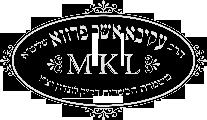
Glatt Kosher Le Mahadrin under the strict supervision of the London Beth Din and Rabbi Akiva Osher Padwa
The Place for a Simcha Sunday to Thursday lunch menu at Take Away prices!
Kaifeng Gift Vouchers are the present of good taste
Shabbos meals blast chilled and delivered every Thursday evening

51 Church Road, Hendon NW4 4DU Reservations: 020 8203 7888 www.kaifeng.co.uk Open Sunday to Thursday: Lunch 12.30 - 2.30pm, Dinner 5.30 - 10.30pm, Motzei Shabbat: September - Pesach





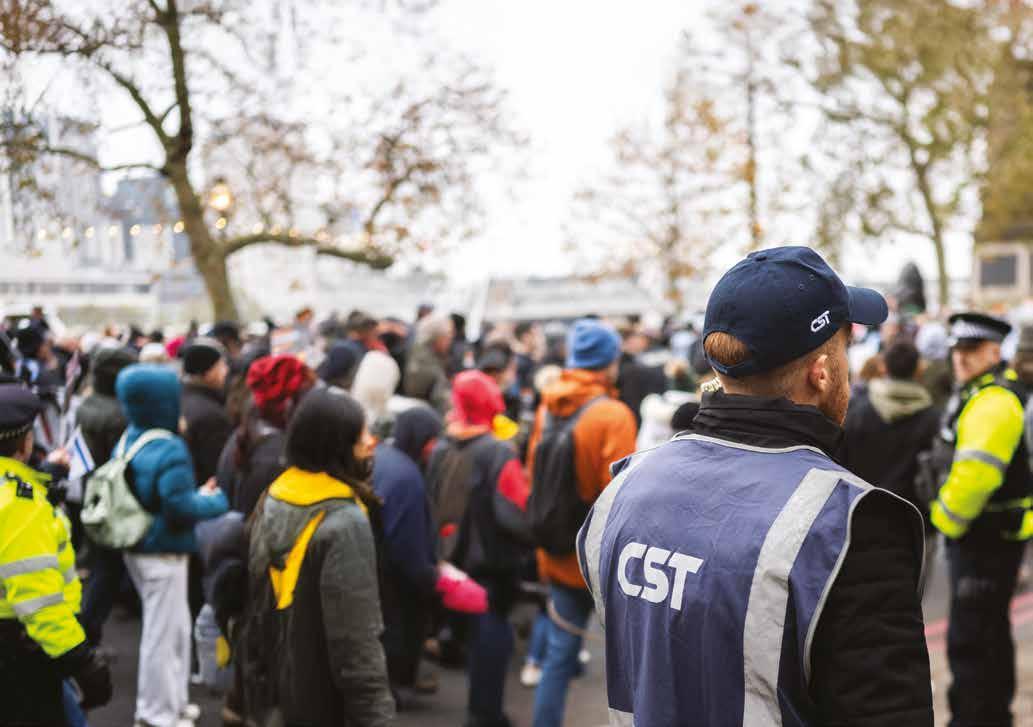
In recent years, CST has invested millions of pounds to strengthen security at Jewish schools, synagogues and other communal buildings. We have thousands of highly-trained security volunteers. We commit to protect our community, making it stronger in this crucial time of need.
The demand for our vital work is greater than ever. Stand with CST as we stand with you.
Please donate: Scan the QR code or visit cst.org.uk/together

BY RABBI YONI ABADI
Young
Profes-
sionals Trip to Miami & the Bahamas
My opening remarks to our group of 25 young professionals were simple:
“On this trip, you’ll meet incredible Jewish leaders, businesspeople, and influencers, and visit places most people never get access to. We’ll have the most fun, but you’ll leave with something much deeper than all of that.”
And that’s exactly what happened. The trip was a spectacular mix of fun, connection, and deep Jewish inspiration. From the vibrant Miami Jewish community to breathtaking beaches in the
Bahamas, every moment was filled with meaning.
The theme of the trip was “What’s YOUR story?”
In a world where we’re constantly bombarded with other people’s lives and distractions, it’s no wonder we sometimes lose touch with our own purpose and identity. Our goal was to help everyone reconnect - both to their personal story and to the larger Jewish story that we’re all a part of.
Through engaging classes and open discussions, we explored:
• Relationships: It’s hard to find your soulmate if you’re not in a “soul state.” Only when we’re in touch with our essence can we truly recognise what (and who) we’re looking for.

• Jewish history: Understanding that our personal story doesn’t exist in a vacuum, we stand on the shoulders of generations who fought with resilience to uphold faith and values.
• Purpose
and individuality: G-d created each of us as one of a kind. When we embrace our unique backgrounds, strengths, and weaknesses, we begin to uncover the light only we can bring into the world.
We met some truly world-class speakers and role models.
Yona Kimchi, an inspiring mother of five and vice principal of a local school, shared her story of faith and leadership. Rabbi Efrem Goldberg, who built the largest and most diverse Jewish community in Florida (and whose synagogue counts Ben Shapiro among its members), spoke about building unity and purpose.
At the prestigious Shell Bay Golf Club, we sat down with Steve Collis, CEO of Cencora, one of the world’s largest pharmaceutical companies with an annual revenue of $300 billion, to discuss leadership, success, and values.
We also heard from the vibrant influencer Adriana Rosie (now Adina), known online as @nowjewishnanny, who shared her emotional journey from a non-Jewish nanny for Jewish families to her conversion and deep love for Judaism.
Another highlight was joining Yehudi, Florida’s biggest Jewish young professionals’ organisation, for an unforgettable night of connection and community.
BY JONAH LAZARUS
Amichai Chikli, the Israeli Minister of Diaspora Affairs and Combating Antisemitism, addressed members of the UK Jewish community at an NJA webinar last night, discussing international solidarity, political alliances and the challenges facing Israel and Jewish communities abroad.
This event was called following Chikli’s decision to invite Tommy Robinson on a tour of Israel in October.
Chikli first entered the Knesset in 2021 for the Yamina party and now serves in the Likud-led government. He discussed his recent initiatives, including speaking to NJA members on their solidarity visit to Israel, as well as convening a
conference on antisemitism. He reiterated his long-standing criticism of BDS and the Palestinian Authority and noted that some progressive Jewish organisations declined an invitation to his conference on antisemitism earlier this year.
The evening’s discussion focused on his recent invitation to British activist Tommy Robinson, who spent four days touring Israel. Chikli said he had monitored Robinson’s work for two years prior to inviting him and believed his visit helped expose international audiences to the complexities of the region.
Acknowledging Robinson’s controversial reputation in the UK, Chikli said he had found “zero issues” in his research that would have deterred him from inviting him to Israel, emphasising that the
We are stronger together.
“full danger” facing Europe comes from radical Islamism. Chikli said he watched Robinson’s recent interviews with the likes of Konstantin Kisin and Jordan Peterson, describing them as “important and insightful”.
The minister also drew comparisons between Robinson and European political figures such as France’s Jordan Bardella and Marine Le Pen, arguing that movements once viewed with suspicion had since “stood with the Jewish community”. Chikli cited Bardella’s decision to leave CPAC when hearing about an alleged Nazi salute from one of the speakers at the event in support of the Jewish community.
Addressing questions from attendees, Chikli defended the government’s
Of course, it wouldn’t be an Aish YP trip without adventure.
But when Friday night came and we gathered around the Shabbat table, my opening words took on a new meaning.
Each participant spoke about what had touched them most. The consensus was clear, while the activities were amazing, it was the classes, the conversations, and the inspiration that left the biggest mark.
As one participant put it:
“The trip was perfect in every way - we made great friends and had so much fun, but the classes made a lasting impression.”
Spending time with the Miami Jewish community added a special layer of pride to the journey.
There’s no hiding their JewishnessIsraeli flags hanging from balconies, “We Stand With Israel” bumper stickers, and even a Tesla Cybertruck with the words “DO A MITZVAH TODAY” across it. Their confidence and open pride in being Jewish were deeply inspiring and something we all hope to bring back to London.
The trip reminded us all:
Each of us has a unique story, but it’s also part of a far greater one.
And when we connect to that story, everything in life starts to make sense.
outreach strategy, affirming that Israel must collaborate with individuals who “see things clearly” about contemporary threats to the Jewish community. He also criticised recent decisions by foreign governments, including the UK’s recognition of a Palestinian state, describing some Western leaders as “stuck in the past”.
Chikli concluded by outlining Israel’s long-term strategy to confront radical Islamist threats, strengthen alliances and expand regional normalisation efforts, affirming the need to support all who stand with Israel and Jewish communities worldwide.
Over the next 30 days of November, please think about leaving a gift in your Will to one of our charity members.



BY RABBI AVROHOM ZEIDMAN
Somewhere between London Euston and Manchester Piccadilly, I found myself drawn into a podcast called Surrounded. The premise is simple: one controversial figure sits in the middle
He takes dozens of supplements, follows an exacting diet, measures everything his body produces, and famously avoids drinking from plastic bottles for fear of microplastics. For him, the logic is clear:
“Don’t die” should be humanity’s number-one priority. Fast food, he argues, ought to be banned as poison. Sleep is sacred. Every detail of his day is engineered around longevity.

while twenty sceptics, arranged in a circle, challenge every claim he makes. The newest episode featured Bryan Johnson, the 47-year-old tech millionaire who has devoted his life to reversing the ageing process.
Johnson insists he has already slowed, and even reversed, his biological age.
Most of the sceptics listened politely. But one lady grew increasingly agitated.
“You have the time and money for this,” she said. “The rest of us don’t.” It was the sharpest clash of the episode. Johnson’s lifestyle demands resources, time and total focus. He sees these sacrifices as worthwhile because he believes this maximises happiness.
I enjoyed the discussion. But
sitting there on the train, I found myself forming a response that none of the twenty voiced.
Judaism does not see life as a goal in itself. Life is a means, a resource, granted by Hashem, to fulfil a mission. The value of a day is measured not by how
long we preserve it, but by how we use it. Just as money carries no virtue unless it is directed towards meaningful ends, so too the span of a life carries no inherent greatness unless it is lived with purpose. He believes his happiness comes from perfect health, but this is where he is mistaken. His happiness comes from living with a sense of purpose. He feels he is experimenting on himself to help humanity, and purpose naturally brings fulfilment. Rav Dessler teaches that happiness does not come from the attainment of a specific goal, but from moving towards one.
This sense of mission explains his fulfilment far more convincingly than any measurement of his biological age.
Judaism also makes an important point. There is a mitzvah to guard your life meod, to look after yourself diligently, because life is a precious opportunity for growth, mitzvot and impact. But if life becomes focused only on extending more life, when does the real purpose happen?
Is longevity itself a worthy mission? Extending life is valuable, giving more chances for mitzvot, kindness and learning. Yet if longevity becomes all-consuming, we risk gaining years while losing life. If every spare moment is spent perfecting
sleep cycles, optimising antioxidants and measuring biomarkers, how much space remains for people, for responsibility, for community?
Johnson believes religion was invented to soften the reality of death, to offer comforting ideas about souls that outlive bodies. But this misreads the heart of Jewish life. Our tradition is not preoccupied with death; it is energised by life. The question Judaism poses is not “How long can I stay alive?” but “What am I alive for?”
One person may live eighty years, another one hundred and twenty. In the end, the number is not the headline. Just as wealth is not judged by how much we have, but by what we do with it, so life is not defined by its length but by its impact.
Longevity is a gift. Purpose is a choice. The real question, the Jewish question, is simple: when my years are done, did the world become better because I lived in it?
Rabbi Avrohom Zeidman is an experienced educator of young people, young professionals and parents and is the Senior Educator at GIFT UK.



























BY RABBI ZVI GEFEN
“People spend many years learning how to make a living, but spend very little time learning how to make a good life.”
Those words came up in a Q&A we were fortunate to have with Rabbi Yitzchak Breitowitz, one of the most respected thinkers in the Jewish world today. He said it almost in passing, but for our group it summed up exactly why a gap year in Israel matters.
I’ve just got back from an incredible trip to Israel with a group of Year 13 Manchester students to get a genuine picture of what a gap year actually is. Not the stereotypes, not the assumptions - just the real thing. We want them to see what an immersive year of Jewish education and personal growth could look like, and to meet the people who live it every day.
Over the week, our students spent time at the Aish World Centre, hearing from speakers like Rabbi Daniel Rowe and Rabbi Dov Ber Cohen, and visiting a range of programmes. The girls visited places like Harova, Aish Aspire and other seminaries. The boys spent meaningful time at Ohr Sameach, Aish and the Old City. They saw the learning, the energy and the warmth of these environments up close. What struck them immediately was the students already learning in these places. They weren’t distant or overly intense. They were normal, friendly, relatable - people with similar backgrounds, similar stories. They were genuinely happy.
One student summed up her experience by saying that “everything in Yiddishkeit suddenly felt connectedand connected to me.” She spoke about how ideas like self-worth, modesty, and identity landed for the first time in a real, personal way. She added a line she’d heard during the week that stuck with her: “Just because it’s a steep uphill mountain doesn’t mean it’s the wrong mountain.” For her, that captured the feeling that growth isn’t always easy, but it’s meaningful - and it’s hers.
One of the biggest misconceptions about a year in Israel is the idea that you sit in a room for twelve hours a day surrounded by “very religious people,” cut off from the world, learning about God and nothing else. It’s an image that couldn’t be further from the truth. What our students discover is that these programmes are not just about learning texts. They are places where young people learn about themselves. They see how Judaism speaks to real life - how it shapes values, sharpens thinking, and pushes
you to grow into a better, more thoughtful human being. It gives you a foundation for Jewish living and an anchor you can carry through every stage of adulthood.
Another highlight of our trip was a Q&A with Rav Yitzchak Berkovits, head of Aish. One of our students asked him, straightout: “Do you know what the purpose of life is?”
(I joked with him afterwards that it’s like asking the CEO of Goldman Sachs whether he knows anything about finance!)
Rav Berkovits answered without hesitation: “The purpose of life is to build a relationship with the Creator by perfecting ourselves and becoming more like Him.” He went on to explain something that really stayed with the group. He said that many people don’t feel good about themselves because they live with traits they know aren’t good - jealousy, impatience, anger - and expect the world around them to simply tolerate it. Deep down, you know you’re capable of more and that eats away at your self-respect. “But we’re not stuck like that,” he told them. “You can learn not to be jealous. You can learn patience. You can learn to choose the right thing even when it’s not natural. And the more you do that, the better you feel about who you are becoming.”
This is the real power of a gap year in Israel. It places you in an environment that encourages you to grow. Not through pressure, but through exposure: to inspiring teachers, to deep ideas, to peers on the same journey, and to the space and time to think about who you actually want to be.
Before the responsibilities of adulthood fully begin - university, work, and all the pressures that come with them - taking a year to build inner confidence, clarity, identity, and purpose may be the most valuable investment a student leaving high school could make.
A gap year in Israel isn’t about stepping away from real life. It’s about giving young people the tools, grounding, and maturity to step into it. For parents looking ahead and asking how to best prepare their children for the next stage of life, a year in Israel is something genuinely worth considering. It offers something that academic study alone can’t always provide - time, space, mentors, and a community dedicated to helping young adults understand who they are and who they want to become.
In a world that moves quickly, giving your child one year to build themselves from the inside out may be one of the most valuable opportunities you can give them.
Please note: The views of the letters do not necessarily reflect the views of this newspaper. Letters may be edited and publication is at the discretion of the editor.
Dear Editor,
Surely BBC’’s news is no longer, “Fit for purpose.”
This is increasingly the view of so many of us
Not least in the British Jewish community but as well
Many others, of all faiths and none, right-minded people
Why – because on so many fronts
The BBC news has caused afront
To so many in our society
That we can all now see
What irreparable damage has now been done to its reputation
Still broadcasting – it no longer merits being a British Corporation
Much of its news output overtly fails to be
In accordance with the content of the BBC Charter
As its reporters exhibit such journalistic behaviour
That BBC news does not deserve to
have a future
It is clearly imbued with in so many cases – a culture
That is woke, Left-Wing, PC (Politically Correct), and biased in favour
Of however the journalists are allowed to report news that reaches our
Eyes and ears facilitating the fears of many
That this is not why we have the BBC
This is especially apparent when reporting about Israel
And any matters pertaining to British Jewish people as well
Which became even more biased since 7th October 2023
When Hamas attacked Israel, as we all know, so brutally
Since that devastating event in that forever remembered year
The BBC reporters sunk journalistic standards to a new nadir
The BBC is now, clearly, in a great crisis
As it does the public a great disservice
Shabbat shalom
J D Milaric










•
•
•
•
•



























Together with Jewish communities across the world, the Forum for Jewish Leadership (FJL) marked the fifth anniversary of the passing of Rabbi Lord Jonathan Sacks zt”l by participating in the Global Day of Learning. True to Rabbi Sacks’ belief that Torah becomes most alive when it is shared and discussed, FJL brought alumni together in London and Sydney for an evening of conversation, connection, and continued learning inspired by his teachings.
In Sydney, Australian alumni - joined by those preparing to embark on the upcoming January FJL programme - gathered with Gila Weiner, FJL educator and Australian Director, to delve into Rabbi Sacks’ reflections on giving, community,
and connection. The atmosphere was energetic and thoughtful, demonstrating how deeply his voice continues to resonate with young Jews seeking meaning and direction.
Here in London, recent alumni came together for a special Friday night dinner hosted by the Newmans. There, the theme of this year’s Global Day of LearningTorah as Conversation - was brought fully to life. Using the Rabbi Sacks Legacy’s Conversation Cards, participants selected questions that opened up rich, probing discussions: If God exists and God is good, why does evil exist? Why is Judaism so repetitive? How should you respond to someone who has offended you? What emerged were moments of intellectual
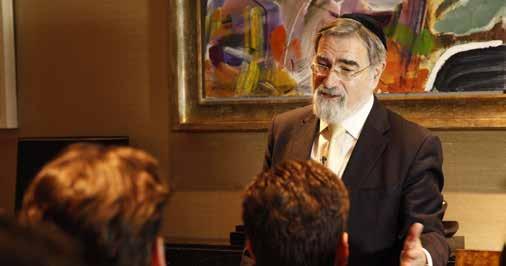
engagement and conversation, exactly the type of discourse Rabbi Sacks championed. Every discussion was rounded off by reading a relevant Rabbi Sacks quote, framing each theme with the clarity and moral depth for which he was renowned.
FJL’s connection to Rabbi Sacks runs deep. Rabbi Sacks was the Founding Honorary President of FJL. Under his vision and educational direction, FJL developed expertise at delivering sophisticated programmes, deeply rooted in authentic Judaism, core Jewish values and appreciation of the state of Israel. His books and ideas became, and remain, integral to the FJL experience. Every participant receives one of Rabbi Sacks’ books at the end of their programme, and every speaker and host is gifted one as well - part of FJL’s commitment to cultivating ongoing Jewish learning. Educators frequently continue studying these works with alumni long after the programme ends. As one alumna shared at Friday night’s dinner, she has been reading the book she received and “really enjoying it.”
This past month, FJL announced an especially meaningful new step: a partnership with The Rabbi Sacks Legacy to launch The Next Chapter, a new 10-day programme that invites alumni to return to Israel for an immersive blend of Torah learning, personal growth, and impactful volunteering. Designed to meet participants wherever they are on their Jewish journey, the programme opens the doors




of some of the world’s most respected Torah institutions, offering inspiring and accessible learning in the batei midrash of Midreshet Nishmat and Yeshivat Har Etzion.
Together with The Rabbi Sacks Legacy, the programme weaves in the timeless ideas and values of Rabbi Sacks, exploring how his teachings can be applied to the challenges and opportunities of modern life. Whether participants are seeking to strengthen foundations they never fully built or to reconnect with the depth of their heritage, The Next Chapter offers a chance to step back into Israel, engage deeply with Jewish wisdom, and contribute meaningfully to the world around them.
FJL continues to cultivate what Rabbi Sacks believed Jewish leadership must be rooted in: learning, responsibility, and a commitment to building a thoughtful, connected, and inspired Jewish future. That commitment is already reflected across our community, with more than 80 applications submitted in the first round for this year’s flagship internship programmes - clear evidence of how strongly young Jews are seeking meaningful engagement. By exposing intellectually curious young adults to inspiring and thought-provoking Jewish role models, values, and experiences, FJL is nurturing the next generation of confident, curious, and responsible Jewish leaders.



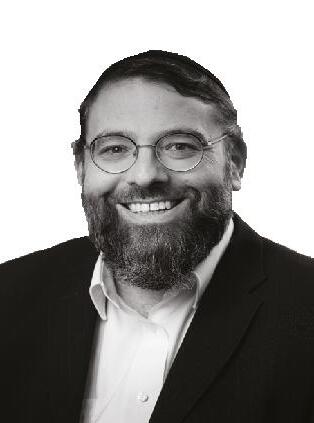
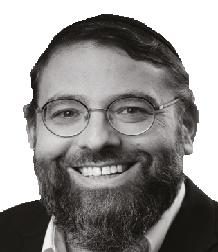


BY RABBI JONATHAN TAWIL
Picture this scenario: You ask a friend for a £3 cup of coffee, promising to repay him upon delivery. He graciously heads to the counter, purchases the coffee, and patiently waits. When he hands it over, you discover he has added some toxic waste to it, yet he still requests the £3. How would you respond? Would you offer the money and perhaps even a blessing?
A parallel unfolds in this week’s Parasha. Yitzchak, unknowingly, blesses Yaakov, thinking it’s Eisav. The Midrash Tanchuma (11) reveals the reason for Eisav’s delay; each animal he trapped was set free by angels. Frustrated, Eisav resorts to serving his father non-kosher dog meat (Targum Yonatan). When Eisav entered the room to receive the blessing from his father the Torah tells us that Yitzchak trembled. He felt the doors of Gehinnom opening. He understood something was not right here.
He had sent Eisav for deer’s meat but received a toxic substitute.
Eisav, realizing the consequences of his actions, pleads with his father, who eventually grants him a blessing.
The Sages are perplexed. Eisav wanted to trick his own father into sinning and eating dog meat. He was essentially bringing him coffee with poison. How is it that Yitzchak eventually gives him a Beracha?
The answer lies in one of the most potent sentences in the Torah. A sentence that we do not see again until the times of Mordechai.
Eisav lets out a great and bitter cry -
When Eisav realised what he had done, when he had a moment to think, he was able to sincerely do Teshuva. Even though the Teshuva didn’t last, nevertheless Yitzchak felt it and was able to give him a blessing. That cry was so powerful its ramifications are felt until today.
We see this concept of slight Teshuva a few more times in Eisav’s life.
When a groom gets married our sages tell us that he is absolved from all his previous sins (according to many, brides are also included).
This is learnt from our Parasha. Eisav’s respect for his father was well known. He had married at the age of 40 to mimic his father who had done the same. But alas his first two wives from among the daughters of Heth caused anguish and pain to his parents. According to the Sages, these women spent all their days in adultery and idolatry. His first wife Adah adorned herself with jewellery (Adayat) for harlotry. Eisav’s second wife, Yudit the daughter of Beeri the Hittite, was an illegitimate child resulting from an adulterous union (Tanchuma, Vayeshev
1). Yudit was also named Oholibamah, a name she was given because she built places for idolatry. (Bamot).
Yitzchak and Rivka were not happy with these wives.
When Yitzchak commanded Yakov to go and find a wife, he made sure to ascertain that she should not be from the daughters of Canaan. Eisav seeing this decided to take on a third wife, this time one that would obey his father’s command, someone not from Canaan, but rather from the immediate family. He married Machalat, the daughter of his uncle Yishmael. The Talmud Yerushalmi (Bikkurim 3:3) states that by merit of this marriage, the Holy One, blessed be He, forgave Eisav for all his sins The name Machalat indicates that G-d pardoned (mahal) Eisav. It is from here that we learn that every groom that gets married merits to have his sins pardoned.
However, it seems that Eisav’s repentance was short lived. In fact he had ulterior motives when marrying Machalat.
The Midrash Bereishit Rabbah (67:8) offers a fascinating insight:
Eisav said: ‘If I kill him (Yakov), there are Shem and Ever who will sit in judgment over me, and say to me: “Why did you kill your brother? Instead, I will go and marry into Yishmael’s family, and he will come and dispute with him [Yaakov] over the birthright and kill him, and I will stand against him [Yishmael] as a blood redeemer and kill him, and I will be the heir of two families”.
Eisav wanted to marry into Yishmael’s family to encourage Yishmael to kill Yaakov. Eisav would then kill Yishmael and inherit all the blessings.
His plan was not fruitful. Our Sages explain that soon after getting engaged to Machalat, Yishmael died. Now Eisav was left with Machalat but not for the reason he married her. Nevertheless he stayed with her and at the time of his wedding was forgiven for his sins.
Nowadays in conjunction with this idea of forgiveness it’s common for individuals to observe the tradition of fasting on their wedding day.
In fact, at many weddings, we enjoy singing the verse in Yeshayahu (62:5) ‘Yasis alayich Elokayich kimsos Chatan al kalah’.
“…And like the rejoicing of a bridegroom over his bride shall your G-d rejoice over you”.
Rimzei Harokeiach (Parashat Nitzavim) makes a fascinating insight into this: The word Chatan-groom has the numerical value of 458; the word AL –on= 100, and Kala-bride= 55. The total numerical value of the three is 613, to hint that because their sins are absolved, the bride and groom are considered to have fulfilled all 613 mitzvot.
Why does a groom receive atonement on his wedding day? The Eshel Avraham (Orech Chayim 573:1) explains (quoting the Pasuk in Mishlei 16:6 “With loving-kindness and truth will iniquity be expiated”) that by committing to building a family, the groom atones for his sins.
The Ktav Sofer (Vayishlach) writes that a woman is called a “Choma” – ‘wall’, because she saves her husband from sin and assists him. In improving his ways after his marriage, a man proves that the reason he sinned before his marriage was only because he was lacking a wife to assist him. Therefore, his sins are absolved.
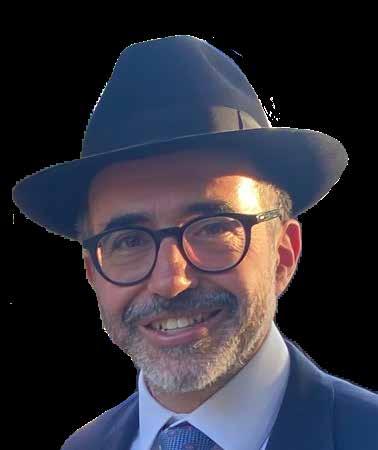
Applying this perspective to Eisav’s narrative, it becomes apparent that he too was presented with an opportunity to seek atonement for his past misdeeds through his marriages. Regrettably, he failed to fully grasp and capitalize on this chance, highlighting the importance of recognizing and utilising opportunities
for spiritual growth and redemption. Life often unfolds as a series of spiritual awakenings, each providing a chance to elevate ourselves and refine our character. The objective is to maintain a spiritual high and continually strive for self-improvement. By embracing these opportunities, whether through the support of a life partner or other means, we can navigate the journey of self-discovery and growth with resilience and purpose. In the game of spiritual elevation, the key lies in our commitment to perpetual improvement and the pursuit of higher ideals.

BEGINNERS’ COURSE - 19TH JANUARY 7:30PM
INTERMEDIATES 20TH JANUARY 1:30PM BRIDGE FOR SINGLES 18 – 30S ONLY FREE TASTER - 12TH JANUARY 7:30PM
TASTER - 12TH JANUARY
BEGINNERS’ COURSE - 19TH JANUARY 1:30PM
HAROLD SCHOGGER’S BRIDGE 18 HIGHVIEW GARDENS, EDGWARE, HA8 9UE 0208 905 3877
SCHOGGER@HAROLDSCHOGGER.COM WWW.HAROLDSCHOGGER.COM


C A E S A R E A
3 5 0 S Q M V i l l a
6 0 0 S Q M l o t
6 b e d r o o m s , 5 b a t h r o o m s
3 L e v e l s
I n - g r o u n d p o o l
S e p a r a t e u n i t
Asking Price:
₪ 1 2 . 5 M / £ 2 . 9 2 M

T E L A V I V
P r e s a l e
L u x u r y P r o j e c t
B e a c h f r o n t w i t h s e a v i e w s
1 - 4 B e d r o o m s a v a i l a b l e
P e n t h o u s e s & P r i v a t e p o o l
O c c u p a n c y : 2 0 3 0
P r i c e u p o n R e q u e s t

L E T Y O U R J O U R N E Y
H O M E B E G I N W I T H U S

A S H K E L O N
A f r i d a r
3 b e d r o o m s 2 f u l l b a t h r o o m s
O p e n s e a v i e w s
N e w c o n s t r u c t i o n G r e a t l o c a t i o n b y M a r i n a
Asking Price: ₪ 3 M / £ 6 9 0 K
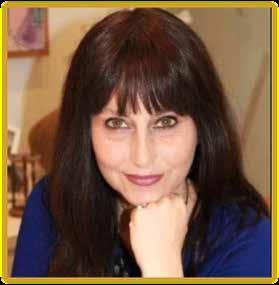

t e r r a c e
F l o o r s 1 6 & 1 7
6 . 5 r o o m s , f u l l y f u r n i s h e d
P o o l & l a r g e g y m
S t o r a g e & 2 p a r k i n g s p o t s
Asking Price: ₪ 8 . 6 M / £ 1 . 9 9 M


N E T A N Y A
L u x u r y p r o j e c t
B e a c h f r o n t w i t h s e a v i e w s
L a s t r e m a i n i n g u n i t s
L a r g e b a l c o n i e s
P e n t h o u s e w i t h p r i v a t e
o p t i o n s Starting Price: ₪ 6 . 2 9 M / £ 1 . 4 6 M





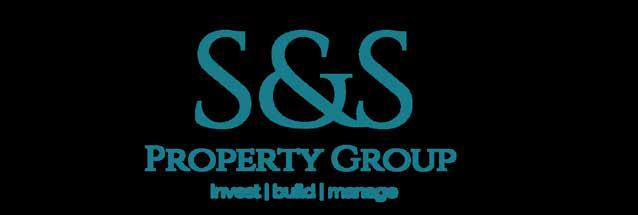


10 nights 31 March - Friday 10 April • 12 nights 31 March - Sunday 12 April

Exclusive Resort & Spa: Indoor/outdoor pools, beachfront location, expansive grounds, and spacious public areas.
Boutique Atmosphere: Only 115 rooms Sea View, Mini Suites, Private Pools, program capped at 350 guests, entire hotel exclusively for Kosher Travelers
Culinary Excellence: Elegant dining, gourmet meals, lavish Kiddush, and all day refreshments & snack bar.
Kashrut: Glatt Mehadrin, Non-Gebrochts, No Kitniyot. Private, family, & communal Seder options.
Inspiring Program: Engaging presentations by R’ Jamie and Ilana Cowland, Meira K, Effi Kolatch & more.
Entertainment & Activities: Live music, entertainment for all ages, kids and teens sports/activities, wellness centre & spa.
Prime Location & Access: Athens or Kalamata airports, free Wi-Fi & parking, local attractions, optional day tours & transfers. Charming Nafplio: Complimentary transfers 20 min to Greece’s most beautiful and historic city.

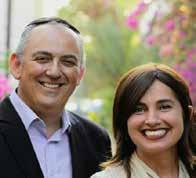

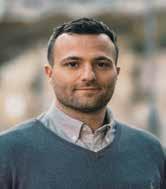
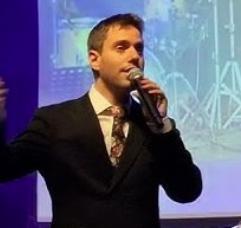
Rabbi Jamie & Ilana Cowland, Meira K, Effi Kolatch, Chai Parnes, Musical Maestro Yossi Shwartz, Daniel Harel, & more!
PRICE STARTS from 2950€ Per Person *double occupancy
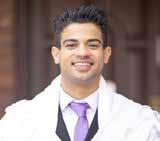





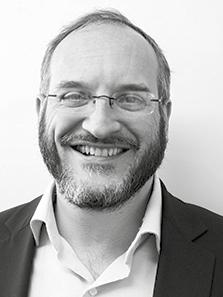
BY RABBI NAFTALI SCHIFF
We all know the feeling. Tired already and there’s still a long Winter ahead! Exhausted and it’s not even lunchtime! I remember the remarkable phenomenon when returning to the army on a Sunday morning after a whole Shabbat of rest and relaxation and within hours, just given the chance, a bunch of exhausted soldiers would be back in the mode of falling asleep in any available position, just sleep!
And then someone pointed out to me a simple yet profound insight from the description of the primordial struggle between our Patriarch Yaakov and his nemesis, Esav.
Esav seems to forfeit his right to the Divine blessing on account of his tiredness!
“and Esav came in from the field and he was tired”
Esav allows tiredness to define him and his single minded drive to satiate his appetite and exhaustion! He demands to partake of the red stew Yaakov is preparing.
יכנא
“I am tired!”
Yaakov offers the pottage in return for the blessings of leadership of the Jewish People. Esav responds-“ I’m going to die, what do I care about the birthright!”
— Bereishit 25:29–32
The Torah sketches Esav’s dramatic entrance: breathless, depleted, driven by appetite and instinct. He declares twice יכנא ףיע “I am exhausted.” On a literal level, we sympathise. After a day of hunting, perhaps killing, the man is spent. And we human beings do get tired, which is why each morning we recognise that Hashem, חכ ףעיל ןתונה is “the One who gives strength to the weary.” and we all get weary.
But the prophet Yishayahu adds a critical nuance: “חכ
’ה יווקו” – “Those who place their hope and trust in God, He shall replenish their strength.” (Yeshayahu 40:31)
This simple insight had a real impact on me. We’re not here to sleep! That’s for another place! The Talmud views sleep as a sixtieth of death itself. Indeed, we must live healthy lives, and every individual needs to know how much sleep they truly require, however in Pirkei Avot we are advised to keep indulgent sleep to the
minimum. הנש טועימ is one of the 48 ways to acquire Torah.
Strength, in Judaism, is not given to those who collapse into fatigue.
It is given to those who live for something beyond themselves.
Esav’s problem is not only physical depletion. It is existential. When Yaakov proposes a spiritual deal, Esav blurts out:
“תומל ךלוה יכנא הנה—“My ‘I’, my “ego” is going to die.”
He understands that to shoulder the mantle of true leadership, one needs to relinquish a certain sense of ego driven self .
What exhausts
Esav is his יכנא- his ego-self. He understands that the bechorah, the birthright of true leadership, demands precisely that: the diminishment of the self. Responsibility requires self-transcendence.
no part of this.
Rivka says: If I cling to ego, I cannot fulfil my mission.
This theme reaches its summit on Mt Chorev, at the Burning Bush.
Moshe protests:
“הערפ לא ךלא יכ יכנא ימ?”
“Who am I that I should go to Pharaoh?”
Hashem does not inflate Moshe’s ego as it were,
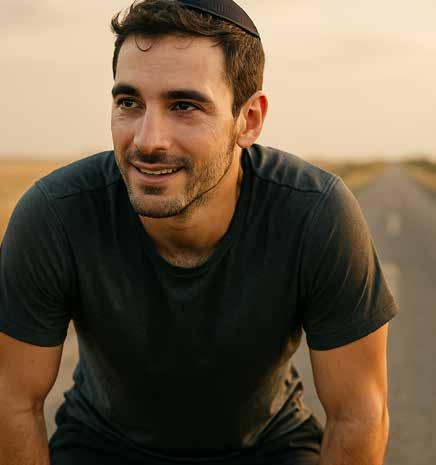
Purpose requires humility. Greatness requires the courage to silence one’s own noise. Fighting the corner of the ego is indeed exhausting.
Esav wants none of it.
If the price of greatness is the death of ego, he would rather remain lie in bed.
Earlier in the parsha, Rivka, carrying these titan twins and feeling the turmoil within her, cries out:
“יכנא הז המל ןכ םא?”
“If so, why am I?”
She is not rejecting motherhood. Perhaps she is recognising that to raise a twins, to impact the generations, the “I” must shift to “we”. Rivka understands that ego needs to move aside so destiny can move forward. She seeks advice from the greatest leader of her generation as to how to navigate that challenging path.
Esav says: If my ego needs to die, I want
He redirects it.
“ךמע ה-יהא יכ.”
“I will be with you.” Hashem repeatedly reminds Moshe who is the “I” in the Torah narrative and in everyday life. And at Sinai, the message becomes explicit:
“ךיקלא ’ה יכנא.”
“I am the Lord your Gd.”
The world only has room for one ultimate יכנא.
Moshe absorbs this, and the Torah later testifies:
“וחל
Even aged 120- “His eye did not dim and his vitality did not weaken.” (Devarim 34:7)
A leader who carries mission instead of self does not tire.
Ego exhausts.
Purpose energises.
We often see remarkable stamina in
many leaders across the world, regardless of politics. Men and women well into their seventies and eighties whose drive has not faded. Their secret is not caffeine; it is conviction.
Yet ego often trips them too.
Purpose without humility distorts. Energy without self-restraint corrodes. The Torah’s formula is older than civilisation:
The more ego, the more exhaustion.
The more humility, the more endurance.
Being tired is a natural phenomena. Am Yisrael have every reason to feel tired today, perhaps every day. However, our national resilience, across millennia, is built on a simple, stubborn truth:
We do not live for ourselves alone.
Jewish strength comes from the refusal to collapse into our own יכנא
From parents who keep giving.
From educators who refuse to give up.
From communal builders who push forward, again and again, because Am Yisrael and the vision thereof, deserves nothing less.
Esav says: “I’m exhausted.”
Rivka says: “This isn’t about me.”
Moshe says: “Who am I?”
Hashem says: “I am.”
The Torah is whispering to every one of us:
When life is about you, you will tire. When life is about something bigger, you will rise.
And when life is plugged into the Source, He has all the power to recharge and he shall give you wings with which to fly.
Because the secret of Jewish strength is not avoiding exhaustion, it is choosing the right things to be tired for.
And once you choose that…sometimes you realise that you’re not so tired after all.
Shabbat Shalom

///What3Words is a geocoding system.
In this column, Rabbi Schiff reflects upon 3 key words each week, relating to issues of the day.
All feedback is welcome. Nschiff@ jfutures.org
Rabbi Schiff is the Founder and CEO of the Family of Jewish Futures educational organisations
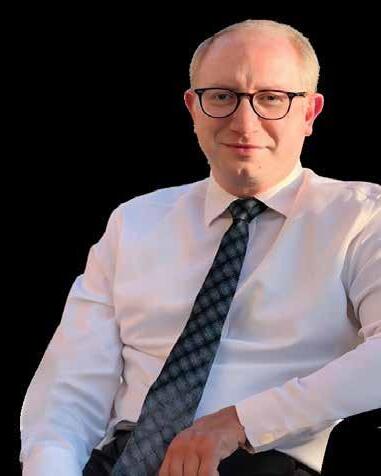
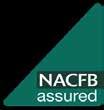


Dear Rabbi Our community feels increasingly divided. Whether it’s politics, Israel, religion, and just about everything else. It’s disheartening. How can we ever come together again? Is there a future for us, if we don’t?
Neil
Dear Neil Division isn’t new to the Jewish people - but neither is unity. The Talmud teaches that the Second Temple was destroyed not because of idol worship or immorality, but because of baseless hatred. What’s remarkable is that Jews then were, on the surface, observant and devout. Their downfall came not from what they did, but from how they viewed one another. United we stand, divided we fall. That’s been our reality from time immemorial. We often think unity means everyone must agree. Judaism never demanded that. The twelve tribes of Israel were different, each with its own flag, colour, and path. What mattered was that they all faced the same Sanctuary - that is, figuratively speaking, the same Divine centre. In other words: diversity isn’t the problem; disconnection is. A divided community doesn’t heal when people stop disagreeing, but when
they start caring more about each other than about being right. The Lubavitcher Rebbe once said: “If we can destroy each other through hatred, we can rebuild each other through love.” That begins with small gestures, whether a Shabbat invitation to someone you disagree with, a compliment where it’s least expected, and yes, even a pause before sending that sharp email or WhatsApp.
We can’t control the noise of the world, but we can choose not to add to it. The Jewish people are, at heart, one soul with many voices. When those voices learn to harmonise again, notwithstanding our differences, that’s when we become unstoppable.
Dear Rabbi
Every week at our shul, the kiddush features a meaty cholent. I’m a vegetarian, and I suggested that maybe, just for one week, we could have a vegetarian
cholent instead. You’d think I had proposed cancelling Simchat Torah. People looked at me like I’d committed blasphemy. One person actually said, “If it doesn’t have meat, it’s not holy.” Rabbi, am I really out of line for suggesting one single week of beans without beef?
Victor
Dear Victor
Let’s be clear: the meaty cholent is not merely food - it’s an institution. It has sustained Jews through centuries of exile, pogroms, and long sermons. Somewhere, deep in the Talmud, it probably says, “One who changes the cholent recipe brings confusion to the people.”
That said, I commend your compassion. Not everyone can look a carrot in the eye and say, “You’ve suffered enough.” So yes, perhaps there is room for a vegetarian cholent, but I think you would have to agree to stand beside it all Shabbat morning explaining to every
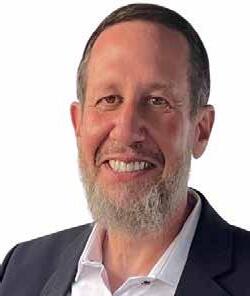
passer-by that, no, it’s not punishment for talking during the Torah reading.
Bottom line: if we found space in Noah’s ark for two of every creature, surely, we can find room on the kiddush table for one humble pot of beans. Just don’t expect anyone to call it “real cholent.”

To get the best value from your private medical insurance, you should speak to an expert who is qualified to advise you on the right policy for you, and recommend the providers who offer the most competitive premiums.
This advice covers individual, family and company policies, and is always FREE.
As an independent health insurance expert, I work with the healthcare insurers to provide you with the appropriate and most affordable level of cover. So whether you have an existing policy or not, let’s have a chat.
You can contact me at 020 3146 3444 or 07956


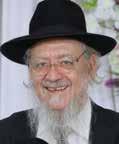
BY RABBI YAKOV SCHONBERG
Zevachim 62a cites a Baraisa teaching that prophets ascertained the location of the mizbe’ach for the building of the Second Beis HaMikdash. In addition, prophecy was also required to instruct that henceforth the Torah should be written in Ashuri (square Hebrew) script. Rashi explains that the change was necessary because the Torah was originally given in Ivri script, known as kesav livonaah, referring to one opinion in Sanhedrin 21b. We shall see the significance of Rashi’s reference to kesav livonaah.
This sugya holds the key to solving the mystery of the origin of the alphabet. Probably one of the most consequential inventions in world history, its origin has been traced back about 3,500 years. Until then, a system of picture writing was in use, using thousands of symbols, as found in Egyptian hieroglyphics and Chinese. Another system in use was cuneiform, which was based on syllabic signs, and also entailed remembering a large number of characters, so only the elite could read and write. The introduction of an alphabetic system revolutionized writing, as it simplified the learning process and there were just 22 characters to memorize. Amazingly, all of today’s major alphabetic scripts can be traced back to one source, the Semitic alphabet, with almost the same sequence; obviously they have a common origin. Greek history records that their letters were taken from the Phoenicians, and we know that Roman, Russian, Arabic and Indian letters were all derived from the ancient Greek letters. The ancient Greeks also wrote from right to left but later flipped the letters, writing in the opposite direction, as can be seen for example with the letter E which changes direction. Extra letters were
subsequently added after the letter T (taf) to cater for sounds in their language for which they had no letter. The academic world is convinced that there must be a link between the earlier picture writing and the alphabet, and their best theory has it that some Phoenician woke up one morning with a brainwave to use just 22 letters, but in reality, it remains a mystery to them. Jewish tradition teaches that the alphabet predated creation of the world, and the world was created using the 22 letters in various permutations as its spiritual DNA. This sugya provides an insight into how the alphabet developed, with these 22 letters forming the basis of all other universal alphabets.
KESAV LIVONAAH
The Gemara (Sanhedrin 21b) asked - what is kesav Ivri? with the answer - kesav livonaah. Rashi identifies the name livonaah saying: :האָָנָוֹביִלִ
large letters similar to those written in kameyos and mezuzos. This comment has baffled commentators because the size of a letter cannot define the style of script, which could be any size. What is Rashi telling us by comparing the letters to symbols written in kameyos and mezuzos? The Ran asks another question. Later, the Gemara wishes to prove that the kesav changed
from Ivry to Ashuri and refers to Belshazzar’s writing on the wall episode, where the people, including the Jews, could not read the Ashuri writing appearing and needed the navi to interpret it. If the difference between Ivri and Ashuri is just the size of the letter, why could the people not understand the writing on the wall? The Ran concludes that Rashi must mean that kesav Ivri has totally different letters which look like the large characters found in mezuzos. Rav Menachem Kasher tries to justify the Ran’s view, explaining that the symbols in the mezuza illustrated in Sefer Raviah (see picture) represent letters in kesav ivri, and attempts a forced explanation of which letters these symbols represent (Torah Shlemah, vol. 22 p. and vol. 29 p. 38). In truth, Rashi says they are similar to letters, not that they represent actual letters. The symbols bear little resemblance to any letter but we shall demonstrate shortly that they are seals which are kabbalistic symbols.
RECONSTRUCTED LETTERS
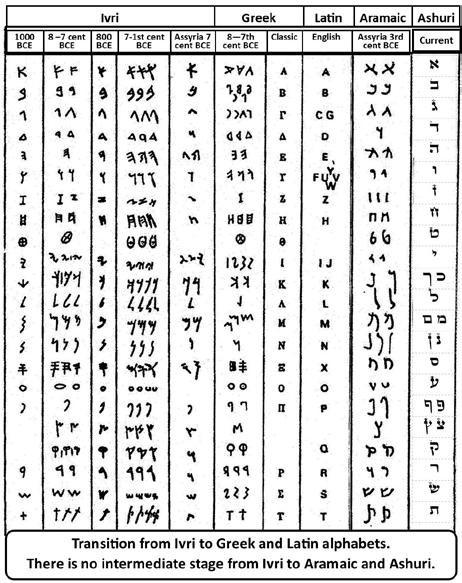
The Rishonim attempt to elucidate the meaning of the word livonaah by reference to its root letters and provide different translations. The Rosh in his recently published Tosafos HaRosh on Sanhedrin 21b provides a clue to understanding Rashi. He translates livonaah meaning melaben libuna, associating the word with livonaah, as in building bricks. This implies that he understands Rashi to mean that kesav Ivri was a development or reconstruction from the original script of Ashuri. Rashi’s words “osiyos gedolos” should then be read as “osiyos gedulos”, redeveloped letters, rather than large letters. In other words, they are the same set of letters with the same names, but they have been restructured to look different. The heads of the upright limbs of the letters have been stripped off, leaving just the skeleton of each letter. In this way, the letter was de-sanctified, but it still served as an alphabetic character for reading and writing. Sanhedrin 22a explains that the Torah script became roetz, shattered, when the people sinned. Maharsha explains
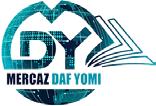
that the Hebrew alphabet became converted into a splintered script, taking the thin and spidery form of Ivri script, as can be seen in the chart. Rabbeinu Chananel’s version of this word is doetz, with a daled, which means to press firmly. This appears to allude to cuneiform letters which are formed by pressing a wedge-shaped stylus into damp clay. Cuneiform, a logosyllabic system (like Chinese) with hundreds of signs, was the standard Assyrian script before the time of Ezra.
Sanhedrin 22a asks why was square Hebrew writing called Ashuris? One answer was that it came up with them from Assyria. The Gemara in Zevachim 62a also connects the change to Ashuris with the return from Bavel. Many understand this to mean that the Jews had grown accustomed to the Assyrian script while they were in exile in Bavel, and they brought it with them as a superior style of writing – thus creating square Hebrew. However, that cannot be true, because no such style existed in Assyria. The standard script in Bavel was cuneiform, which is not alphabetic. Aramaic was also used, as Aramaic had become the lingua franca (common language) for trade and daily communication across much of the Near East, but that was written in Ivri characters and not Ashuri. One only finds Aramaic in letters resembling square Hebrew characters after the death of Belshazzar in 539 BCE, soon after the writing on the wall episode. This can be seen in the Aramaic column in the chart and would have been imitating the new Jewish square Hebrew script. The dates shown on the chart follow secular chronology, which is about 168 years earlier than Jewish dating, where the change happened around 3389 = 370 BCE (see https://tinyurl.com/DAFTOPIC41 to understand the discrepancy).
We have seen that these symbols correspond to names of angels. Rav Aryeh Kaplan explains that the Zohar states that there are two types of angels (English translation of Sefer Yetzirah p. 171). We know that every time we do a mitzvah, we create an angel – a positive spiritual force. However, there are also permanent angels which represent a set of spiritual forces designed to achieve a particular function. How these spiritual forces combine is the essence of kabbalistic teaching, which is beyond my understanding, but let us just focus on the concept. The different spiritual forces of say, Gevurah, Chessed, Tiferes etc combine to achieve different purposes, and each combination is given a name – the name of that malach, or set of spiritual forces. That interaction can be depicted graphically with a model

structure. We find a parallel in the physical world, where different atoms combine to form molecules, and a geometric model of balls and sticks is used. The graphic depiction of each malach is also comprised of a group of circles and connecting rods, with each circle representing a specific force and the rods showing the relationship between them. The illustration here depicts the seven seals used in kameyos. One can see the similarity between the Gavriel seal in the mezuzah from Sefer Raviah to those in the diagram. This is Rashi’s example of reconnecting broken letters.
We now need to understand how the letters developed according to the Jewish tradition. The Chasam Sofer in a derush (omitted in modern editions) suggests that the Ashuri letters of the Torah contained secrets of the entire Torah she’Bal Peh only known to Nevi’im, and general people utilized a degraded form of the letters which did not have such
intense kedushah (Toras Moshe – Parshas Shemos). This kesav livonaah was created by rebuilding each letter, breaking down its constituent elements, and removing the heads of the letters, resulting in a primitive looking form of the letters. Although some of the letters remained somewhat similar and they retained their names and sequence within the alphabet, the new characters were de-sanctified and no longer had the spiritual power of kesav Ashuri. They could therefore also be used for mundane purposes. Sefer Yetzirah is ascribed to Avraham Avinu, and it contains permutations of the 22 letters with which the world was created, in the same way as DNA contains chains of instructions. It is interesting that the universal public appearance of alphabetical writing coincides roughly with the time of Avraham Avinu. This would be typical of his achievement to benefit all of mankind by disseminating the concept of alphabetic writing. However, the original Ashuri alphabet was only passed down to his descendants through their spiritual leaders.
Many Rishonim wish to prove that the Torah must have been given in Ashuri, because the center parts of the letters mem and samech were miraculously suspended in the luchos (Megillah 2b, Shabbos 104a), but in Ivri these two letters are not circular. There is further proof from the account of Moshe witnessing HaShem attaching crowns to the heads of letters of the Torah (Menachos 29b). Only Ashuri letters have such heads. The Radvaz (Teshuvos Radvaz s. 883) succeeds in reconciling the conflicting sources on the basis of the Yerushalmi (Megillah 1:9) which states that according to the view that the Torah was given in Ivri script, it was the ayin that was miraculously suspended, rather than the mem and samech. (See the chart showing that the ayin is a circle in kesav Ivri). Radvaz therefore asserts that the first Luchos were engraved in Ashuris script and contained all the teachings hinted in the




letter shapes and tagin. When the people sinned with the Golden Calf, they no longer deserved this script and the Torah script was degraded to kesav Ivri, the commonly used script, in the second Luchos. However, in Ezra’s time, the Anshei Knesses HaGedolah prayed to have the strong passion for Avodah Zarah neutralized (Sanhedrin 46a). Consequently, the Jewish people were now worthy of the holy Ashuri script. Ezra took the Belshazzar vision as a signal that it should be reintroduced. It was reintroduced in Bavel, and when they returned to Yerushalayim, they brought this script with – hence it was called Ashuri, as it had been reintroduced in Ashur (Bavel).
Rabbi Schonberg was born in London in 1948 and attended Hasmonean School. He attended Manchester, Chaye Olam and Gateshead Yeshivos.
To contact Rabbi Schonberg, please email, yschonberg@gmail.com
To find out more, you can sign up at mercazdafyomi.com and receive a free gemoroh.


BY DAN MATALON
Next Thursday, Americans will be celebrating Thanksgiving, which arrives each year as an invitation to slow down, to gather around a table and savour what we too often rush past.
Historically, Thanksgiving was a feast and a celebration of gratitude for the harvest, something we as Jews can relate to. For millennia our people lived agricultural lifestyles, the year’s successes and fortunes tied to the fruitfulness of one’s toil in the field, the crop harvested and the weather. This explains why we pray for rain at Sukkot, our own autumn harvest festival, and for dew through the winter and spring months to fertilise our soil. It is why we give thanks on Tu Bishvat for the end of the winter dormancy, the flowing of sap which in turn carries nutrients round the tree and fuels the development of new leaves, flowers and fruit. It is why we were commanded to bring the first fruits of our wheat harvest to the Beit Hamikdash, at Shavuot.
But the thanksgiving for our food doesn’t end with the first fruits. Our tables, whether a weekday breakfast nook, a long Shabbos table or a Thanksgiving feast laden with roasted meats and mountains of seasonal vegetables, become miniature sanctuaries. They echo the
ancient altar where offerings were lifted heavenward. Today, we lift our voices in blessing.
Judaism has a deep instinct that food is never just food. It is relationship, blessing, opportunity. Every bite is preceded by a bracha, turning the act of eating into an act of noticing. We taste the sweetness of a grape and acknowledge the One who brings forth fruit from the vine. We break a loaf of bread and feel the partnership between human hands and divine generosity. In Jewish life, food is not incidental, it is one of the most reliable doorways to gratitude.
After the meal, we don’t simply push back the chair and carry on. The Torah commands us: “Ve’achalta, ve’savata, u’veirachta” – “You shall eat, and be satisfied, and bless.” Birkat Hamazon, Grace After Meals teaches us that gratitude is most authentic when we are full, perhaps even a little tired and ready for a shluff! It is easy to bless Hashem for providing when we’re hungry; but it is more profound to bless when we are satisfied.
One of the striking features of Birkat Hamazon is its expansiveness. It is not a quick thank you; it’s a whole worldview. The text itself gives thanks for the food we’ve just eaten, for the land of Israel, for Jerusalem (and the Temple), and for the divine kindness that sustains us moment
to moment. It reminds us that a full stomach is never an isolated gift, and never to be taken for granted; it is connected to history, dignity, responsibility, and a relationship with the Divine. In a world where meals can be rushed, distracted, or eaten standing over the sink, saying Grace AFTER Meals is a radical act; a reminder to pause, remember and be grateful.
These thankful pauses are moments the world needs more of. It is a tragic irony that in recent years, Thanksgiving has been tethered to Black Friday, standing as a singular day of calm reflection before the storm of consumerism and greed reaches its annual high.
Thankfully, for Jews, the act of giving thanks isn’t reserved for a single day on the calendar. To give thanks is to be a Jew. The Hebrew word for Jew is Yehudi, from the same root as LeHodot, to give thanks.
Upon arising each day, before our eyes even adjust to the light and our minds switch on, we utter the words Modeh ani… thanking Hashem for returning our soul, for trusting us with another day of possibility. Grammatically speaking, the subject would usually precede the verb, i.e. “I give thanks,” but the words of Modeh Ani are reversed. “Thanks I give.” This declaration puts gratitude at the fore. It is a daily exercise in humility, a reminder
that Hashem is the Source of all, and it is to Him that we owe thanks for every moment of every day, for every morsel of food we eat, for the seeds we have sown, and the harvest we reap. Happy Thanksgiving!
Creating exciting and immersive experiences that use food as a vehicle for Jewish education, Ta’amim offers a pathway for connection to our history and heritage like no other.
Ta’amim has a global outlook, recognising the breadth and diversity of our journey and offers a clever combination of traditional recipes with modern twists for those looking to celebrate our past whilst developing our future. Discover delicious recipes and food for thought on the Ta’amim website:
@wearetaamim


16th December | Central London | Doors open at 6:45 pm Event will run from 7 pm to 9:15 pm Venue details will be sent nearer the time
Tickets: £18 NJA members
£22.50 non-members Limited availablity, Early booking recommended www.nja.org.uk/upcoming-events/




Are you building up surplus cash in your business?
Too much cash just sitting there and feeling like you might be leaving money on the table? Fortunately, we can help.
As a long-established and renowned financial advisory practice, we advise on tax -efficient ways to grow your surplus cash or even extract it with less tax using our smarter dividend strategy all through the use of fully regulated investment solutions.
We provide comprehensive financial advice on all aspects and can also work closely with your accountant to ensure everything is coordinated, so that your cash works harder for you, not HMRC.
If you’ve ever asked, “How can I get more from my business while paying less tax?” then you’ll want to watch our pre-recorded webinar. Get access by emailing: webinar@arnoldaaron.co.uk or WhatsApp 07957 440 724.
to our newsletter: newsletter@arnoldaaron.co.uk


















